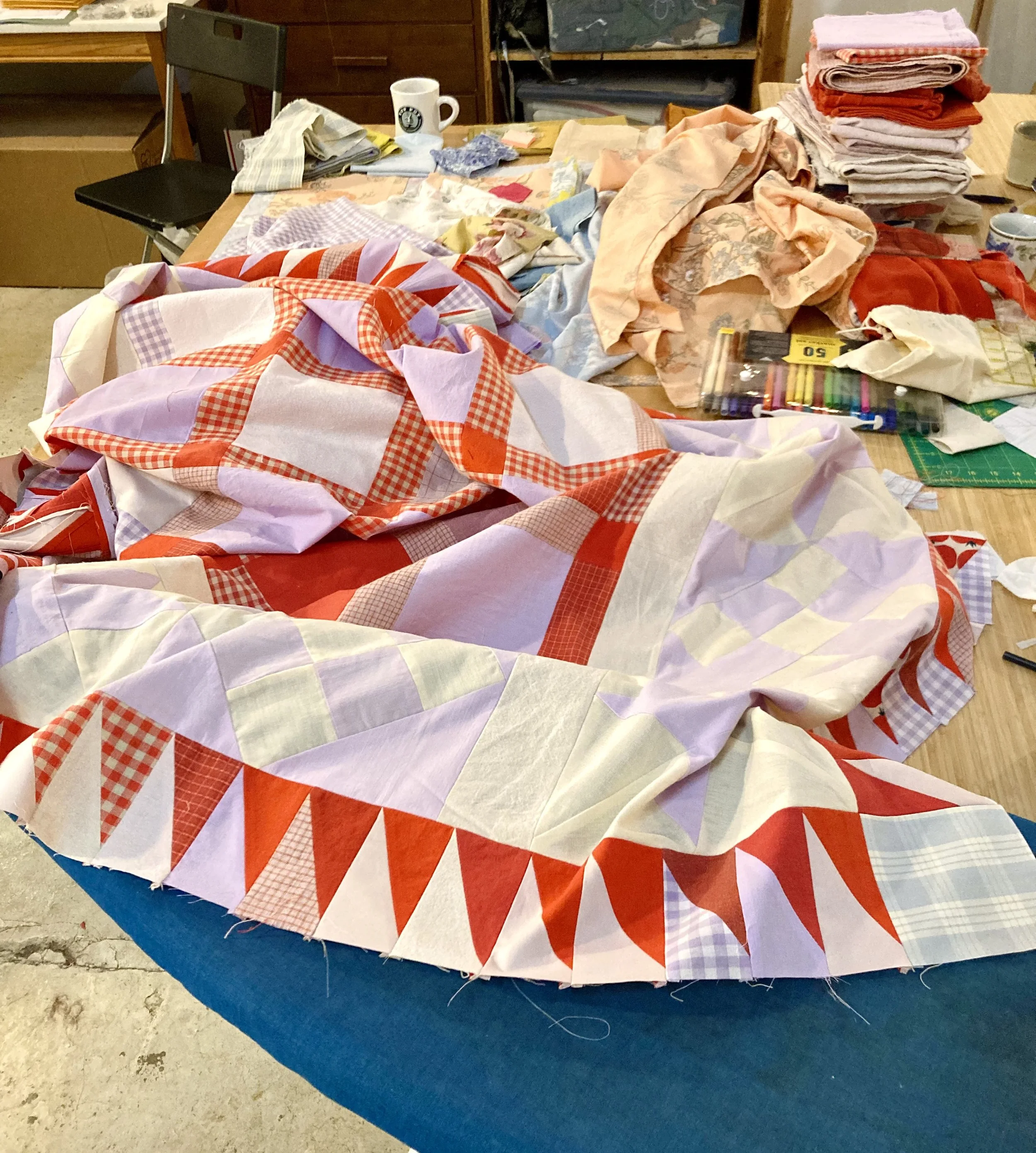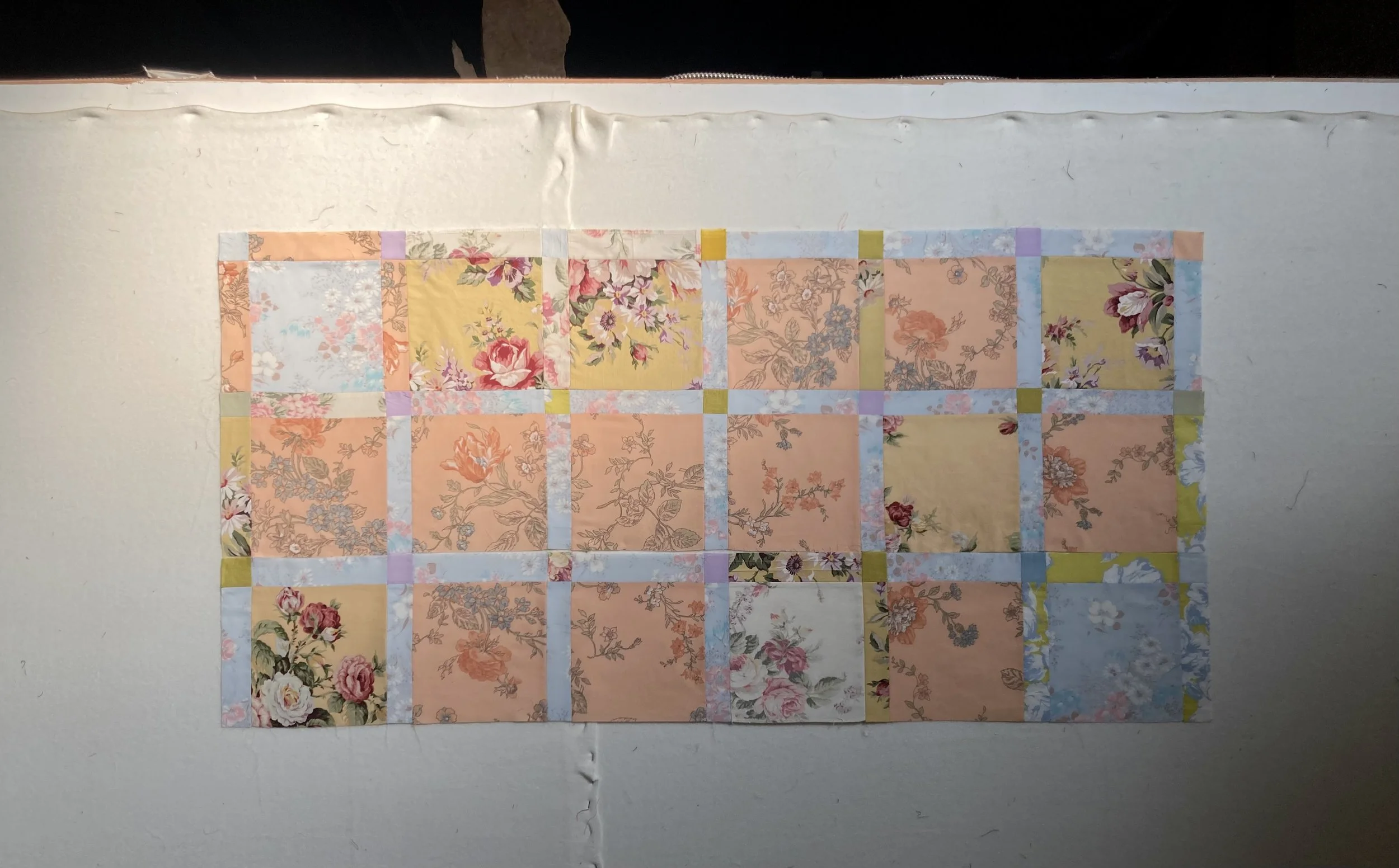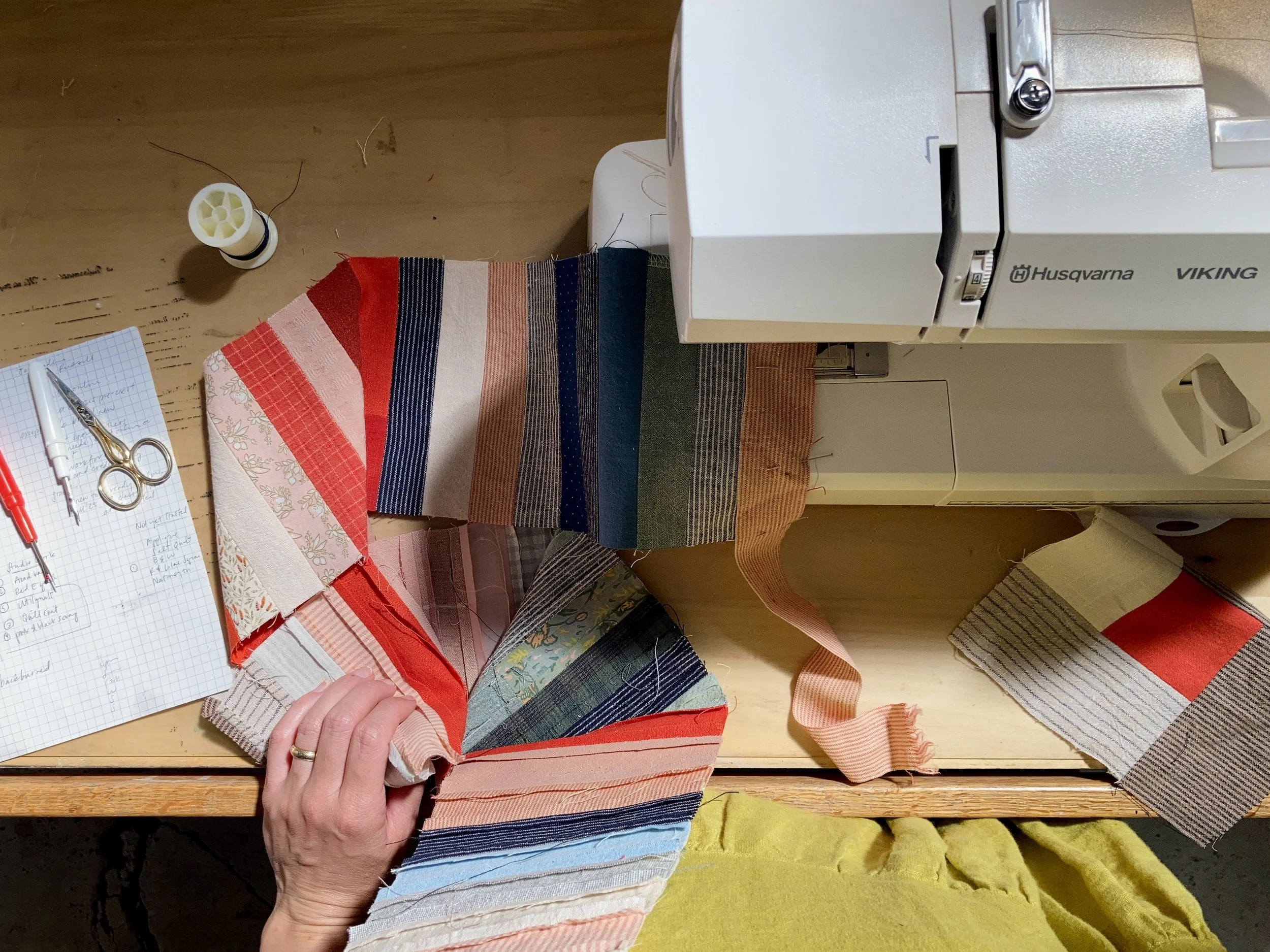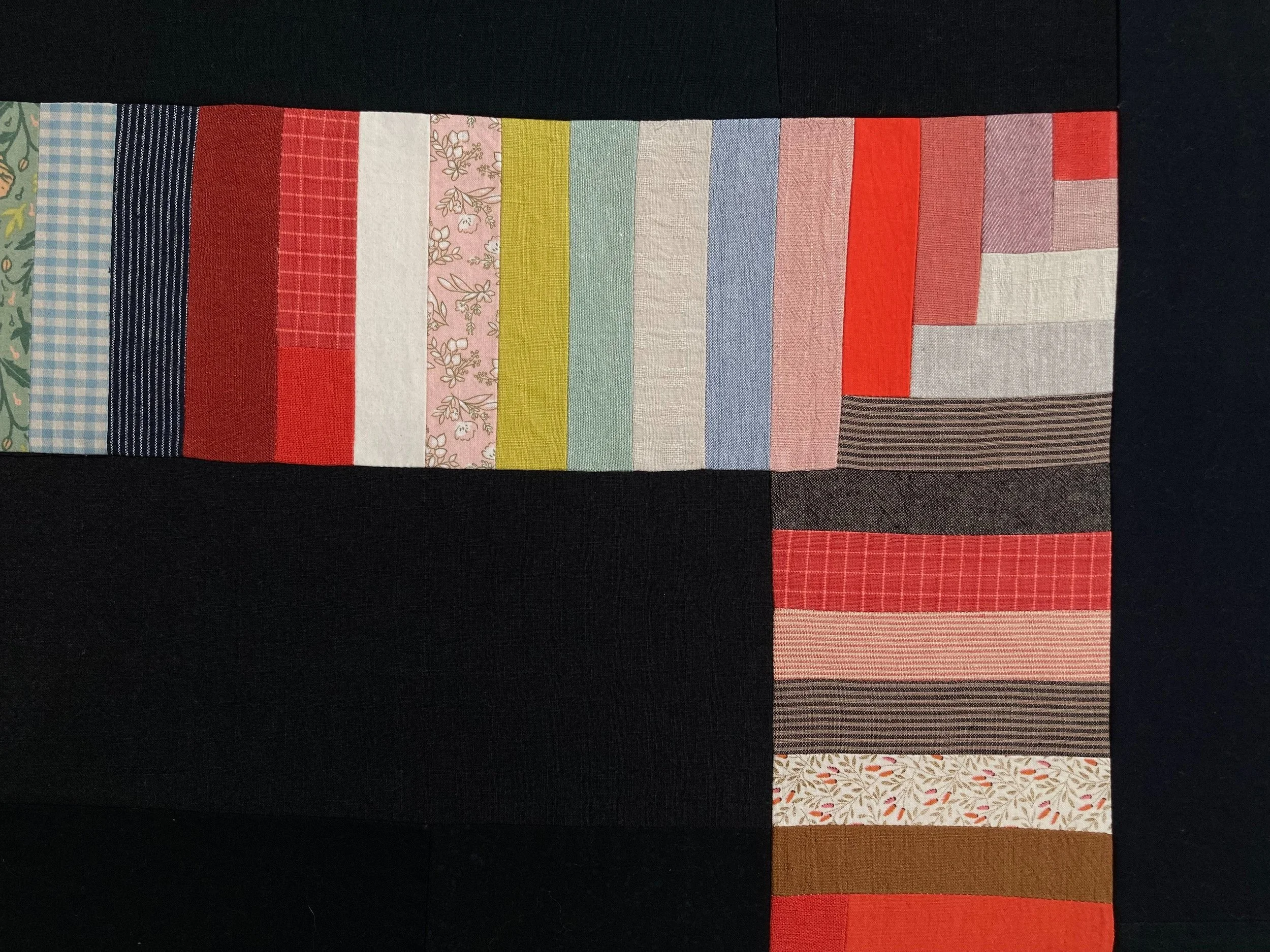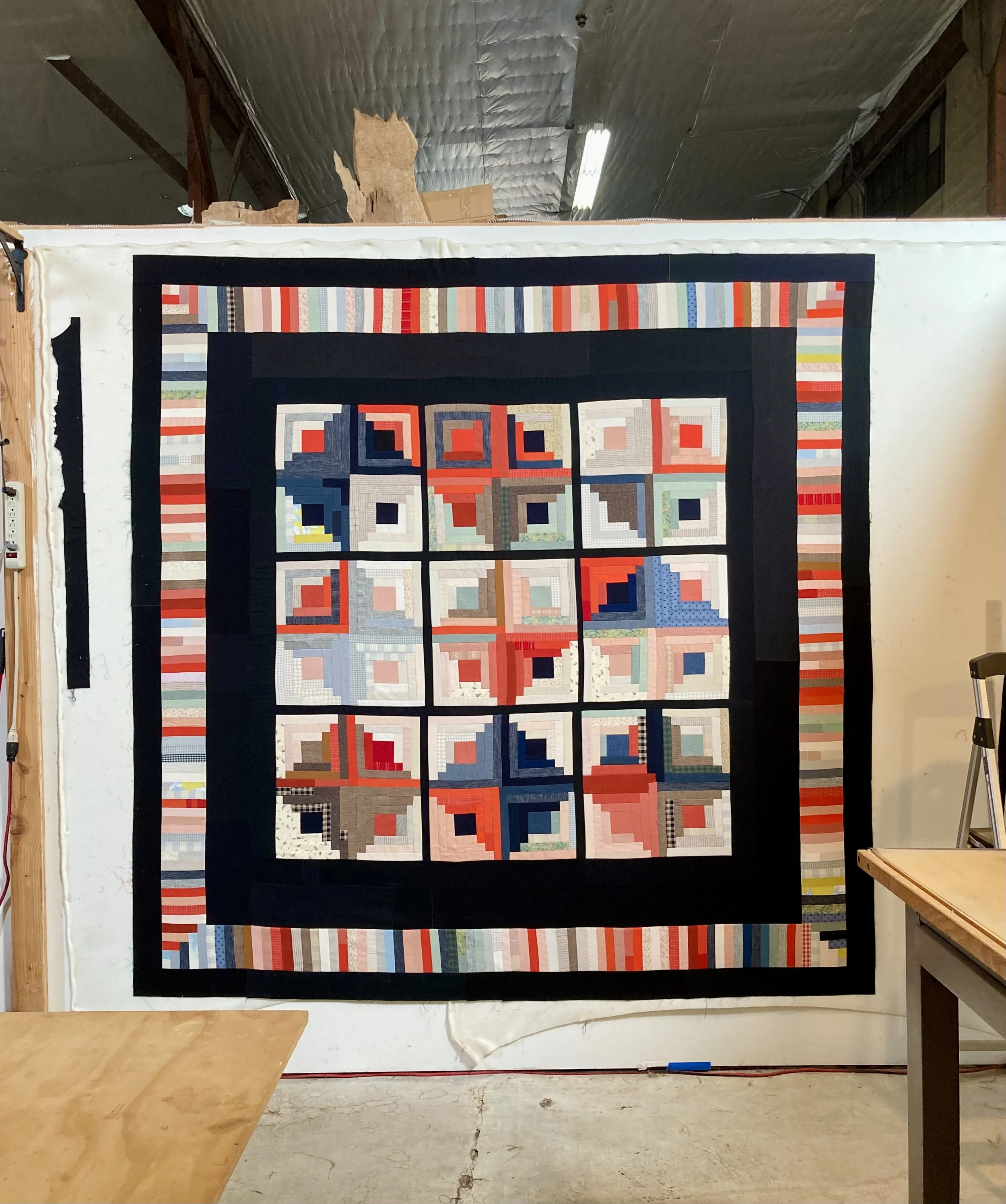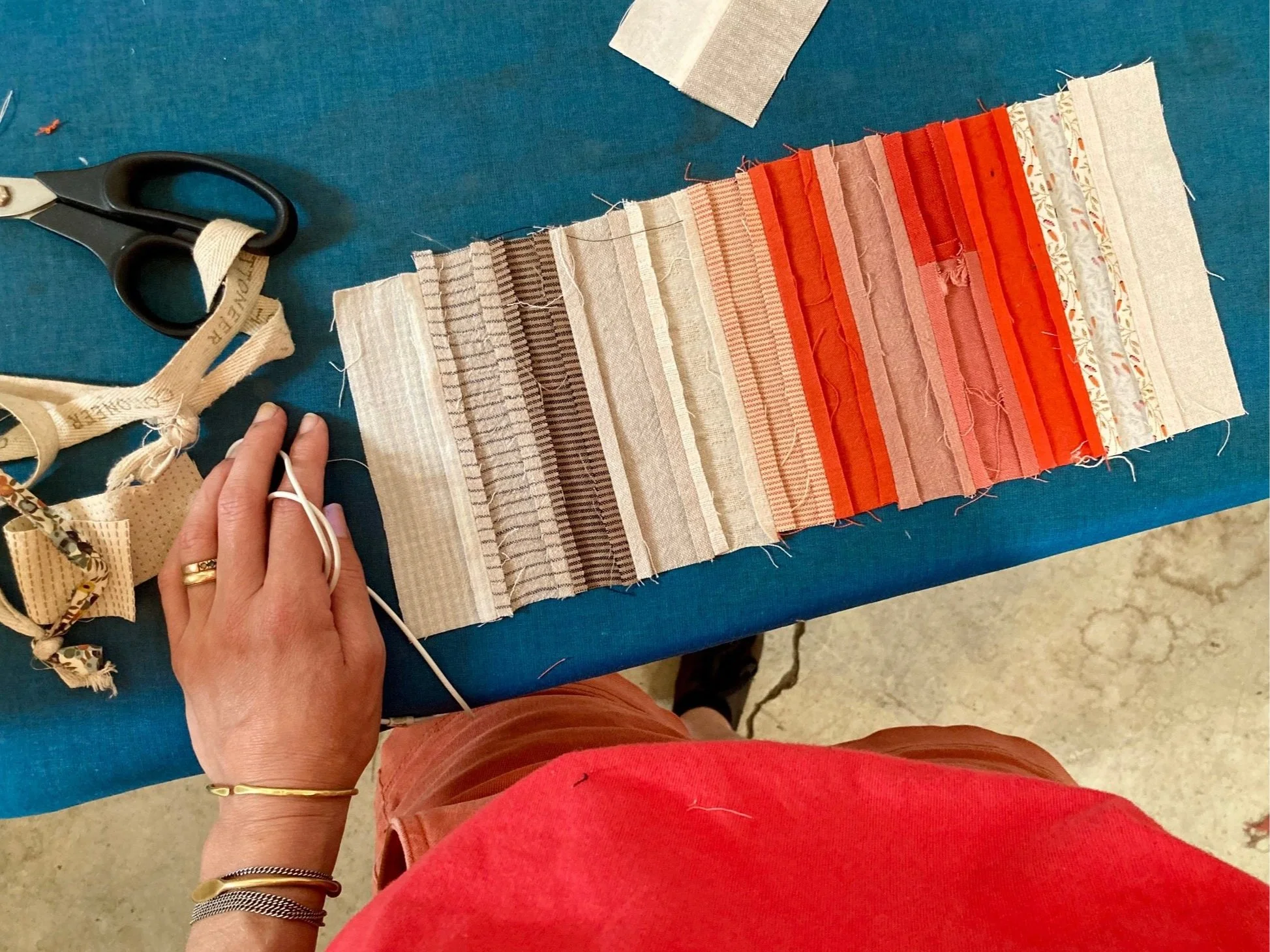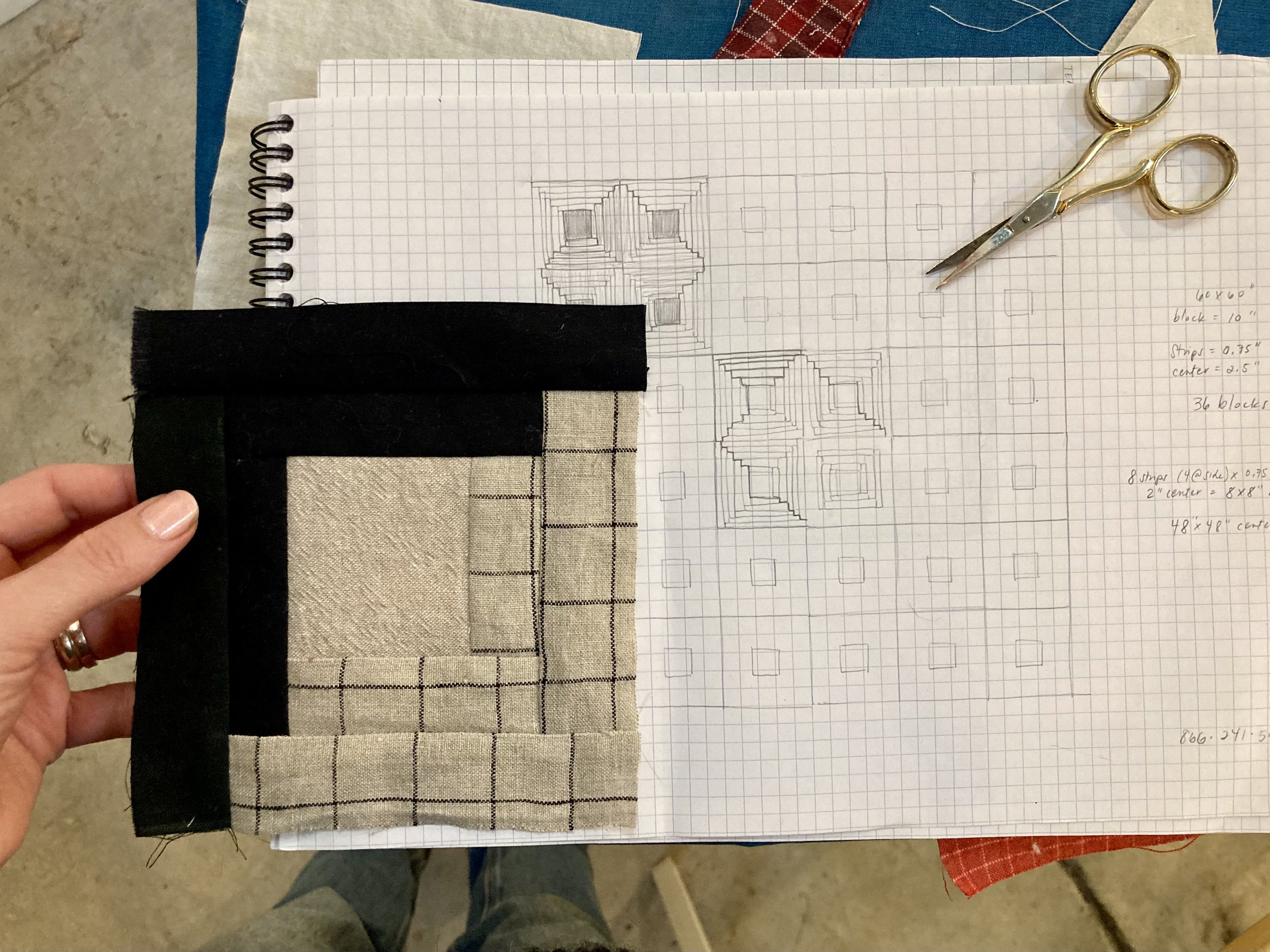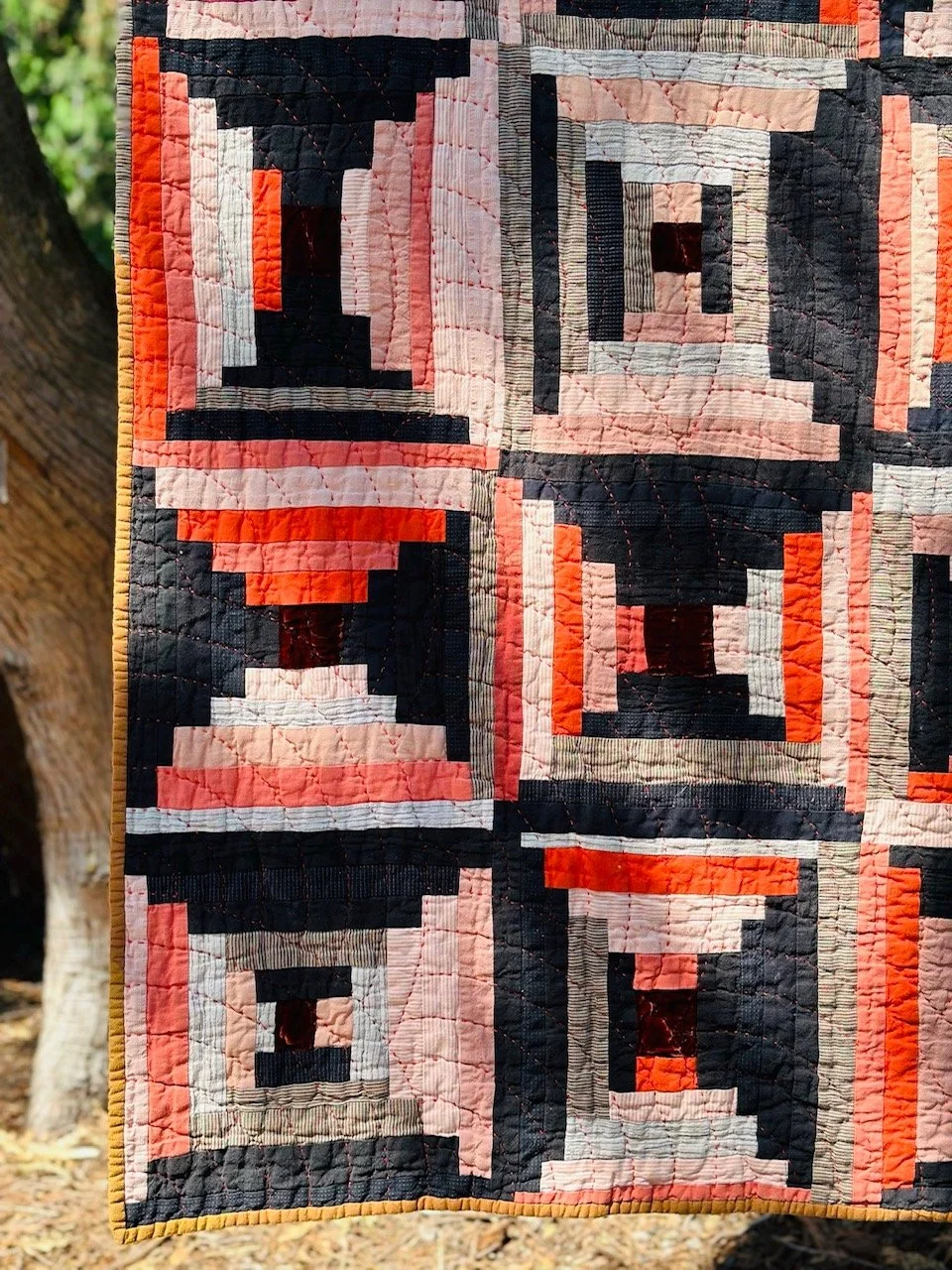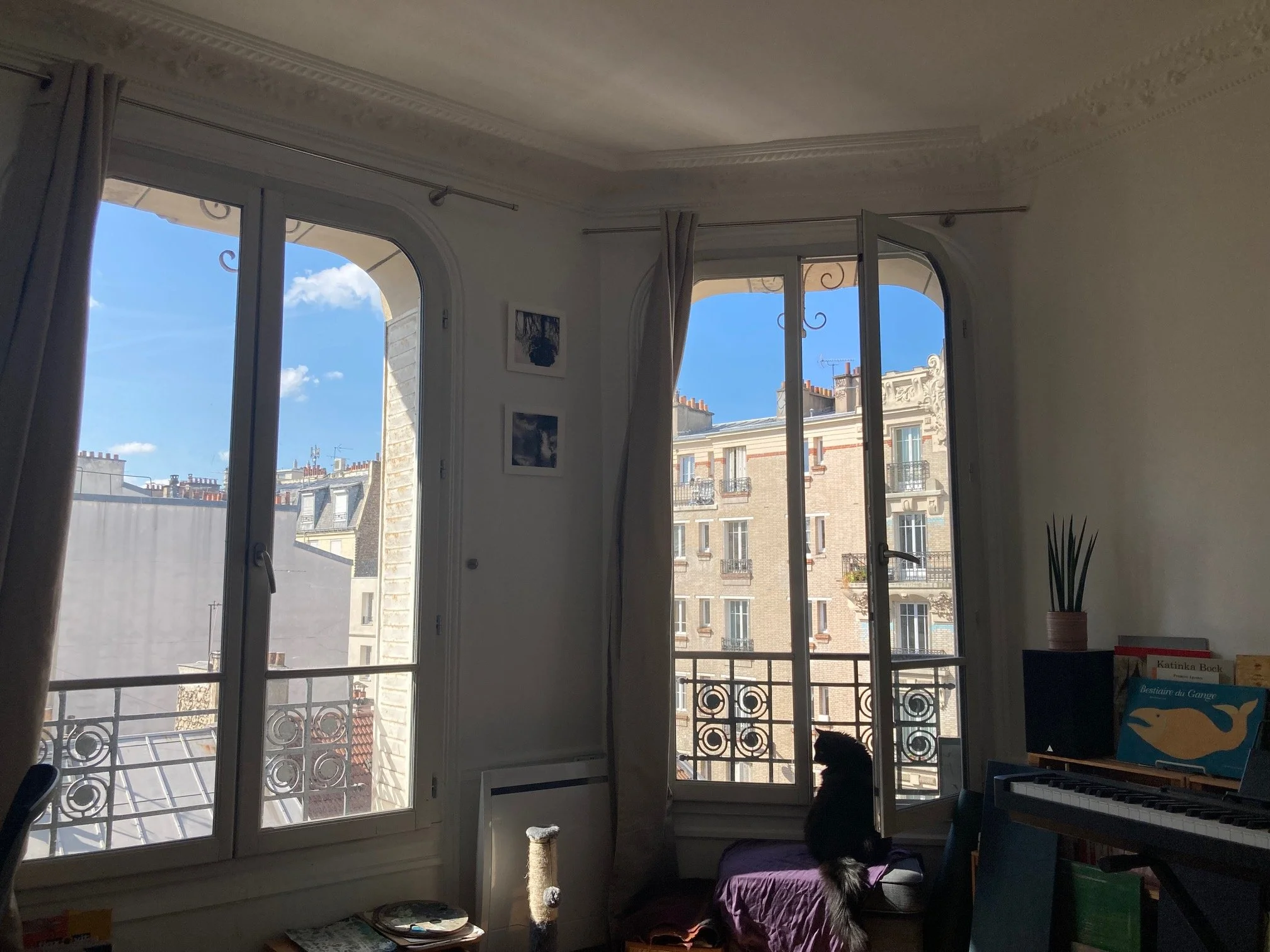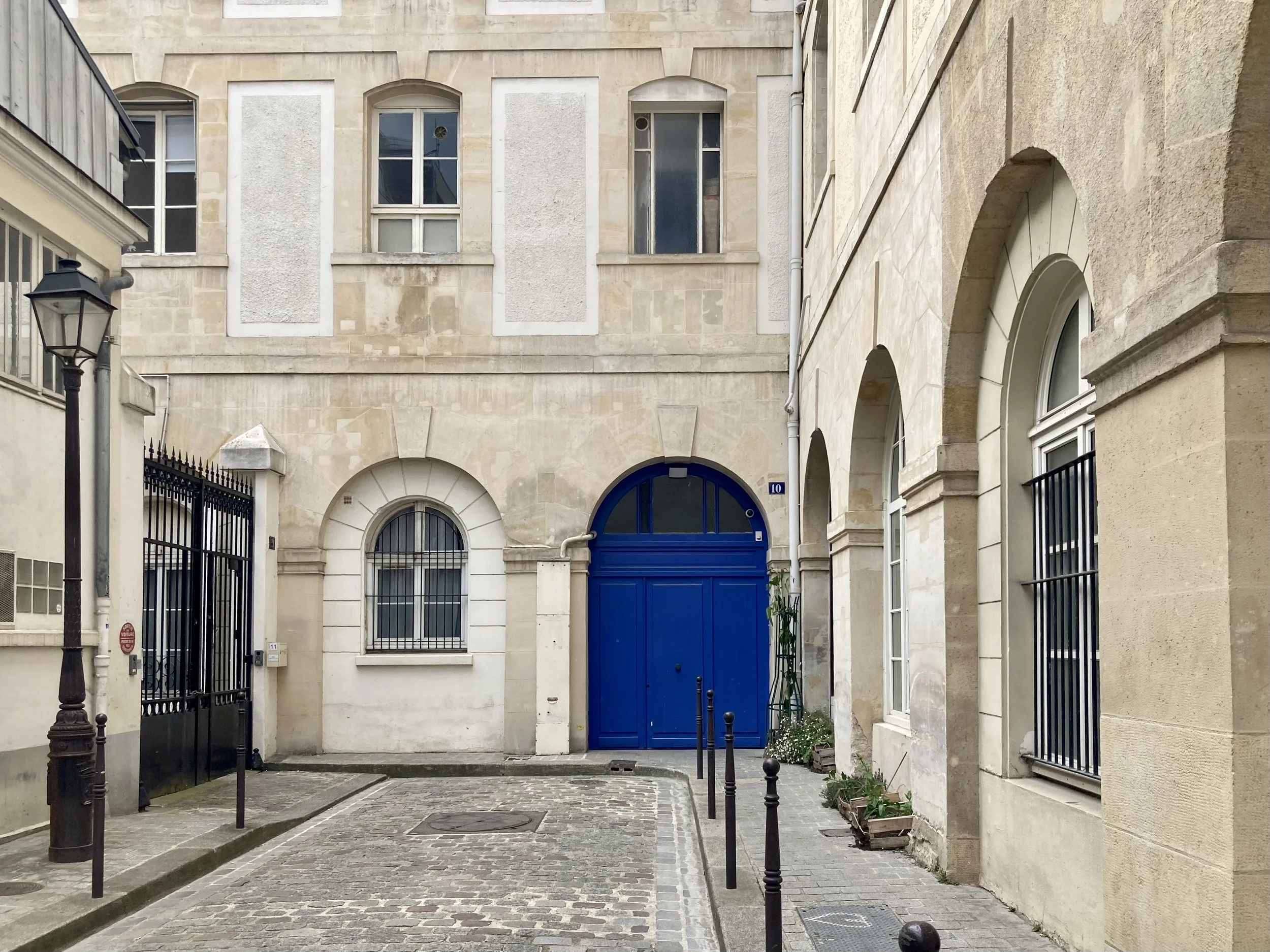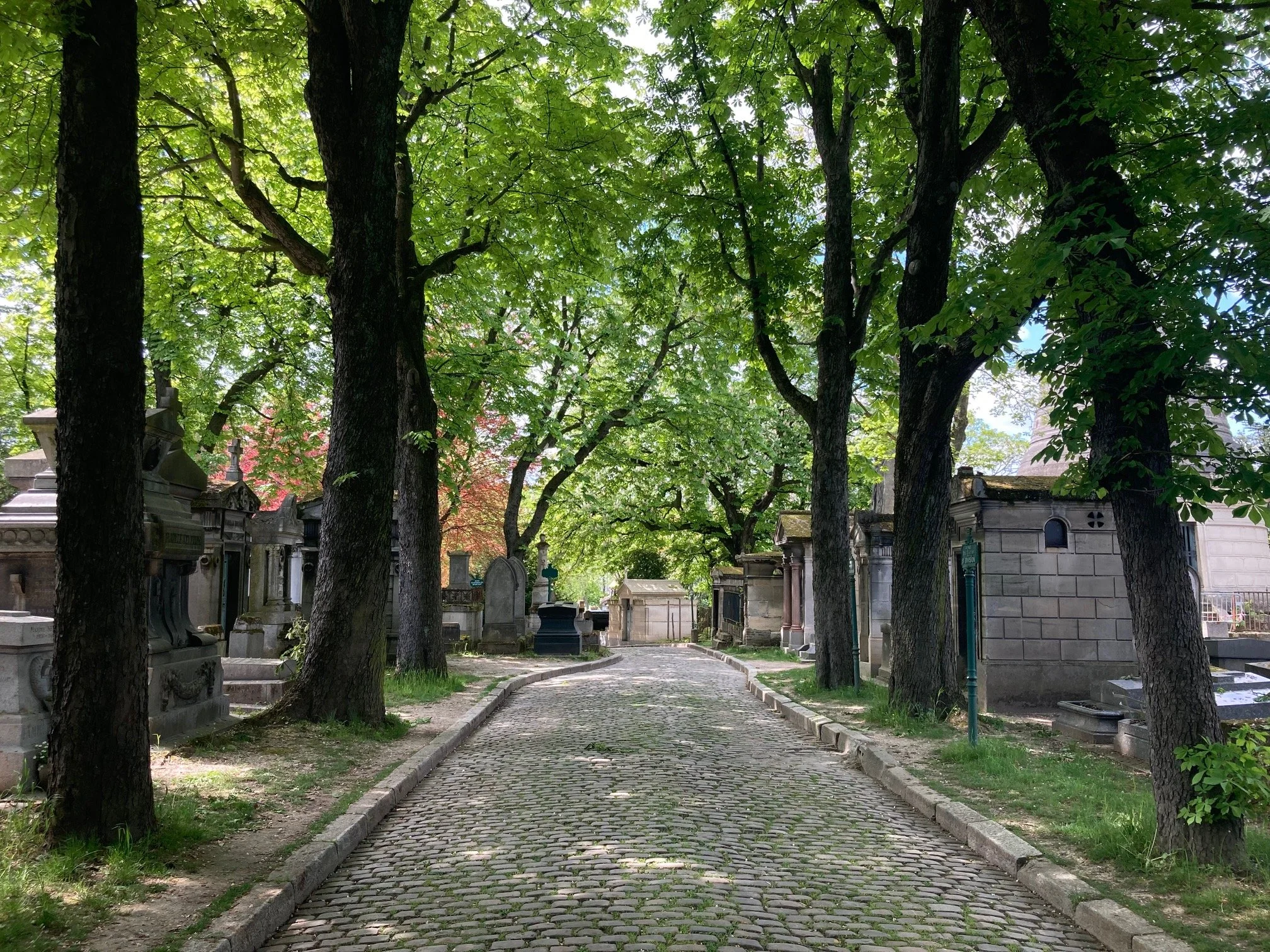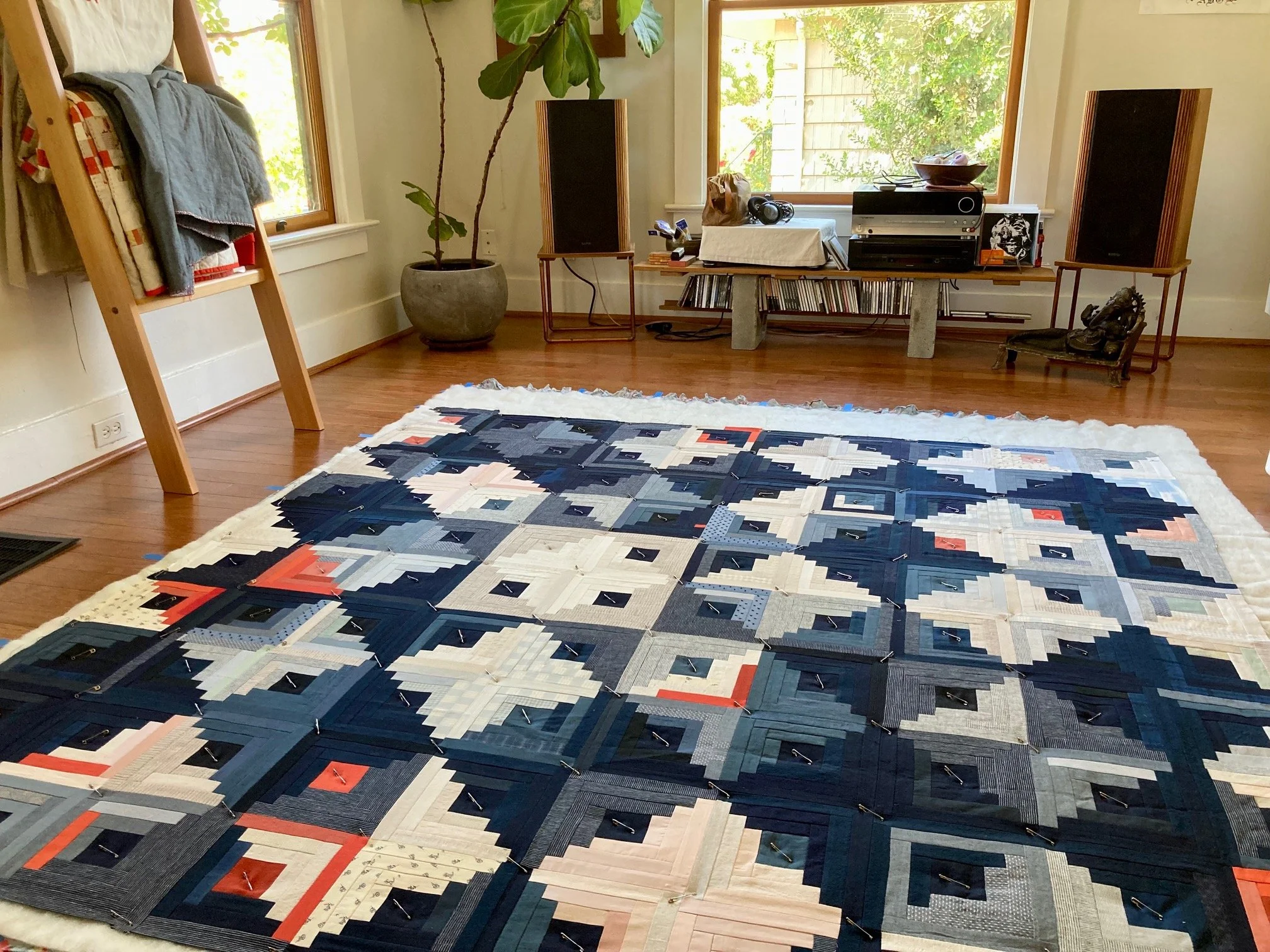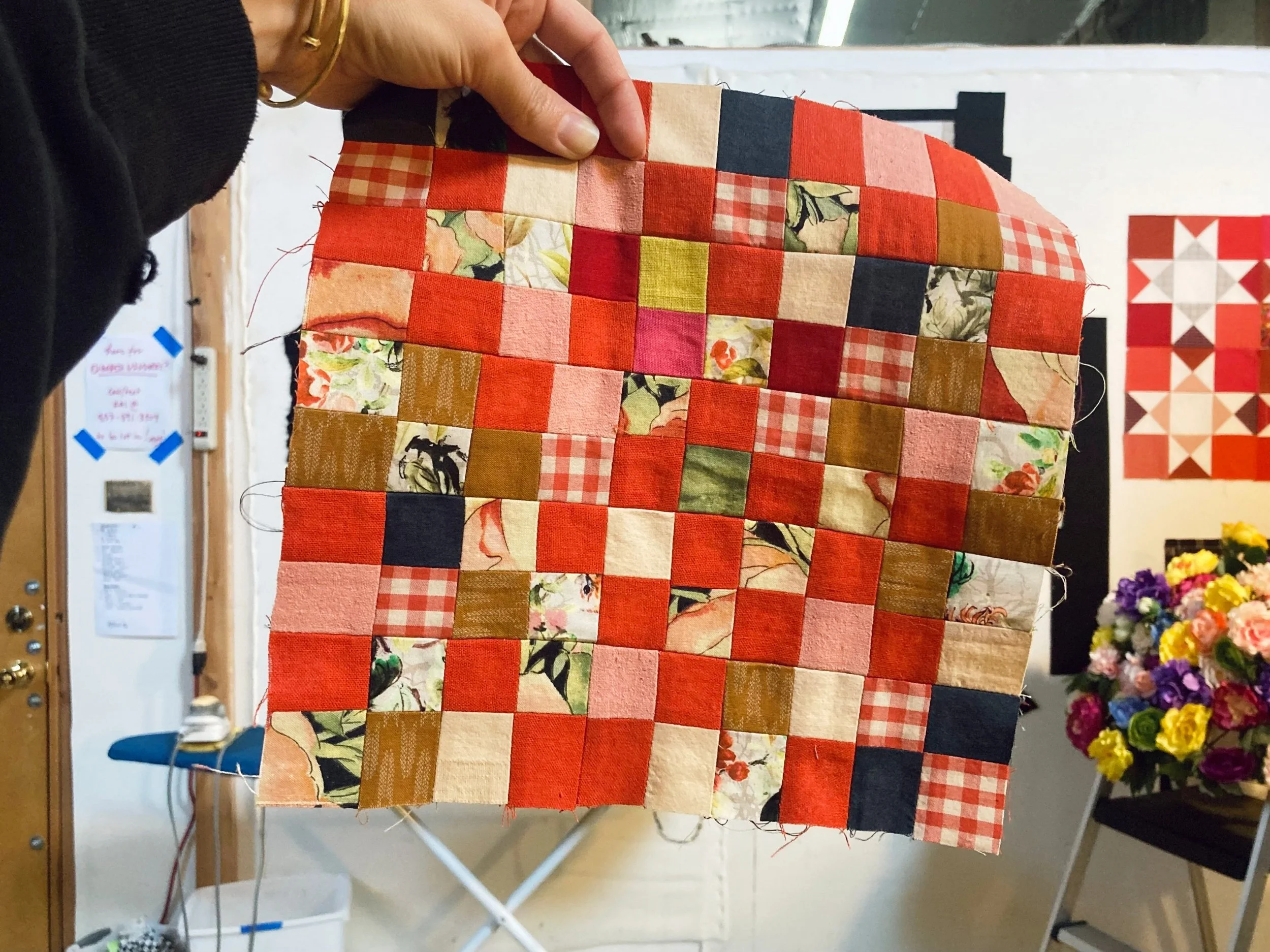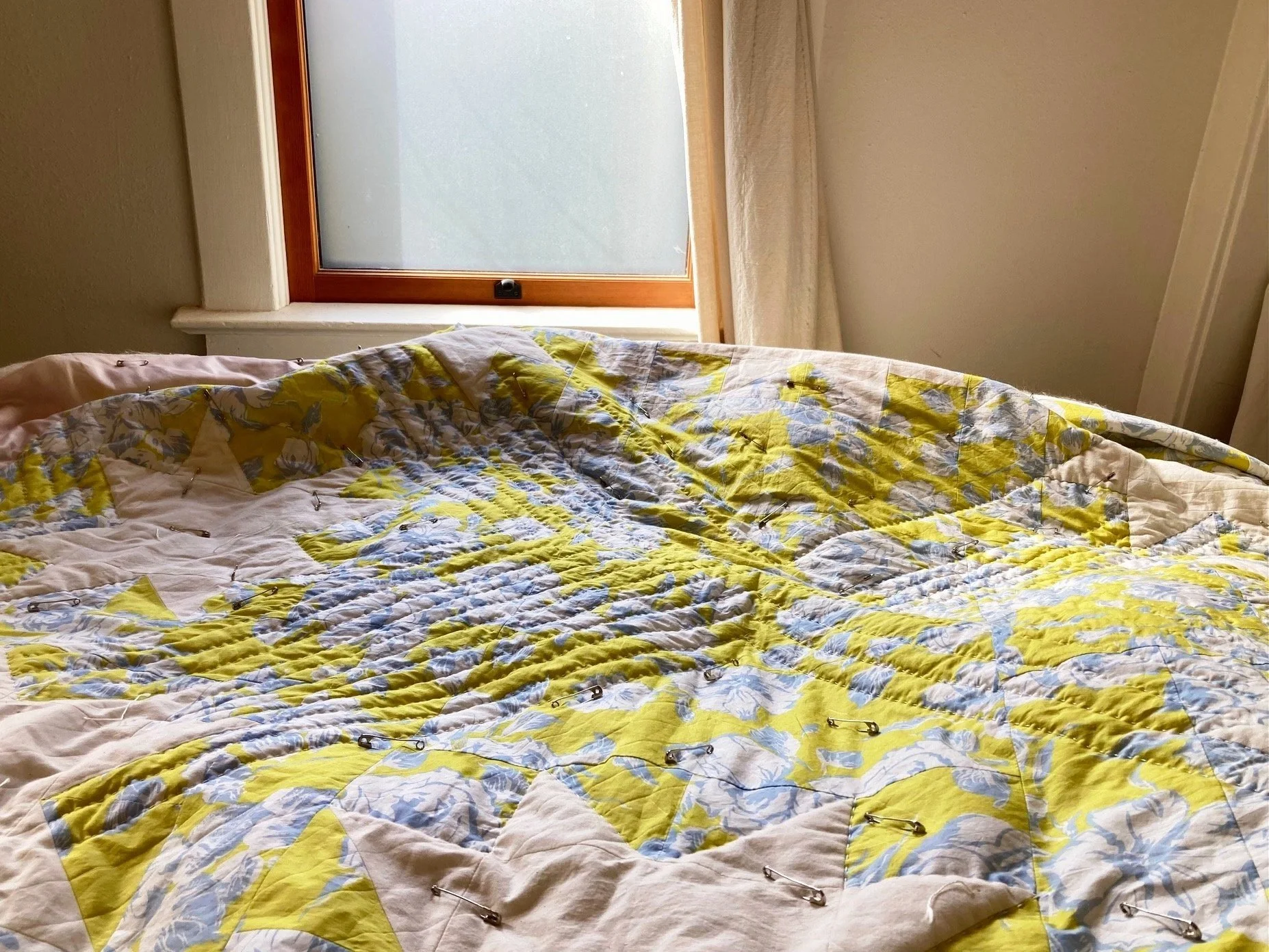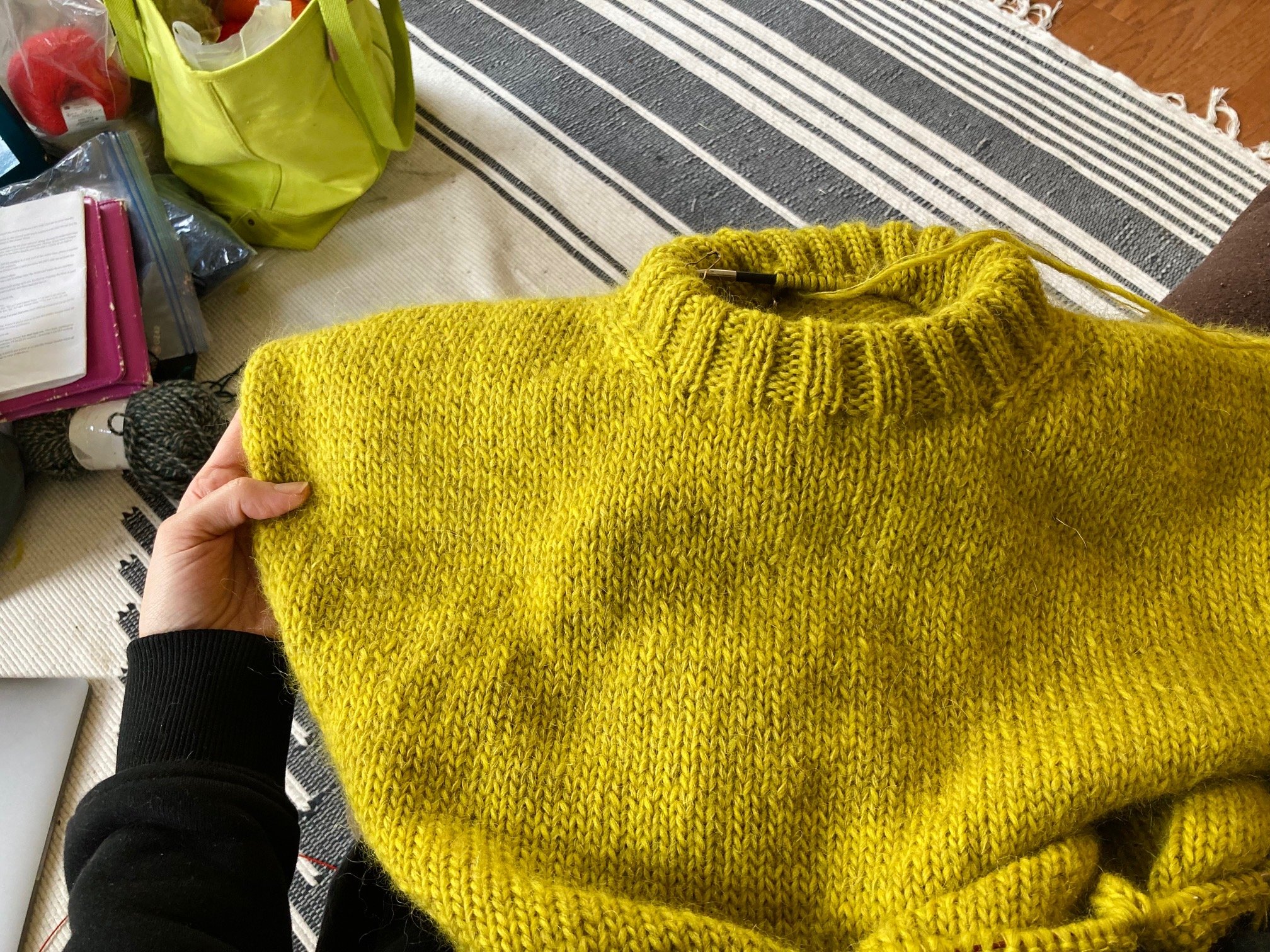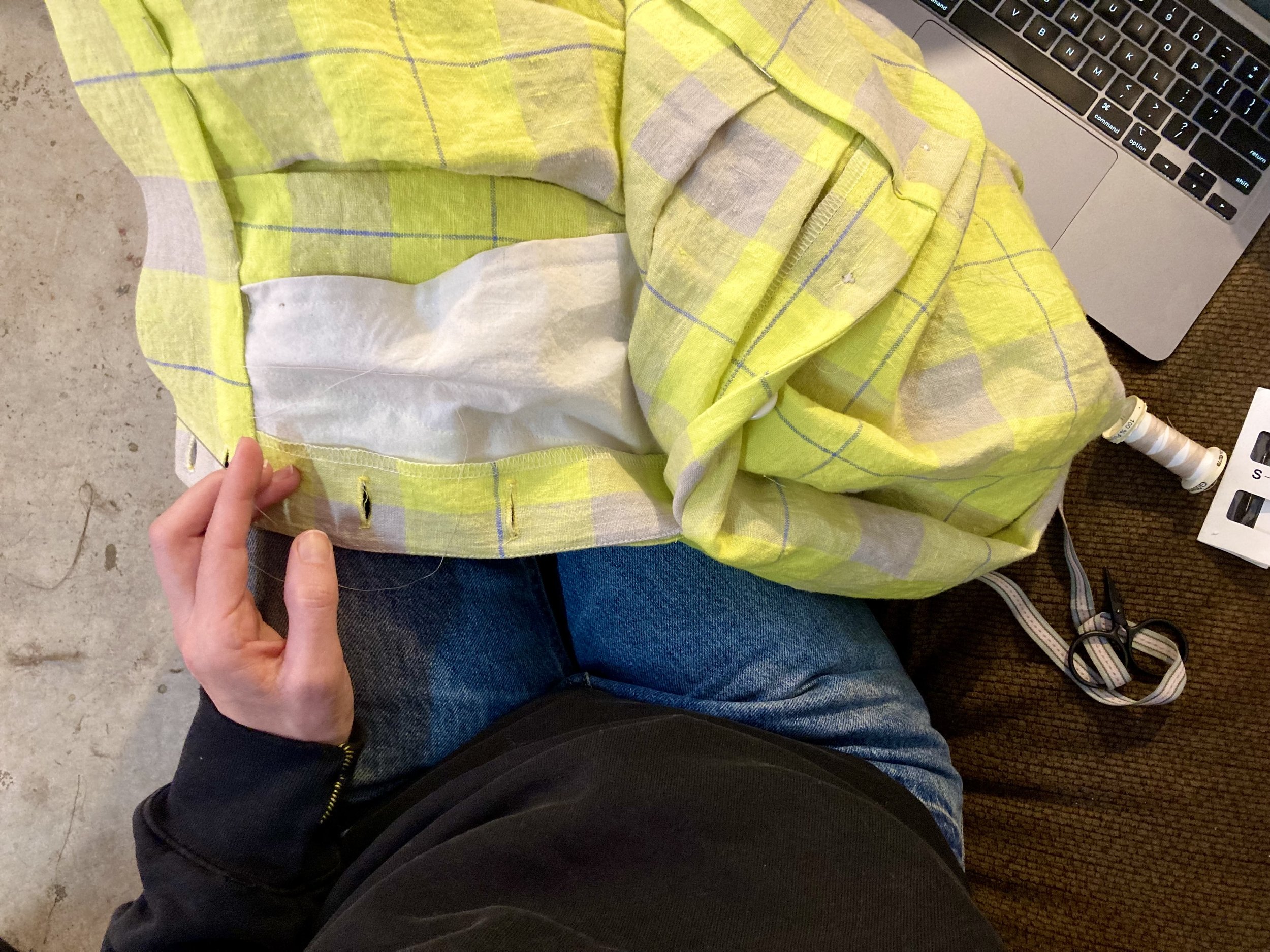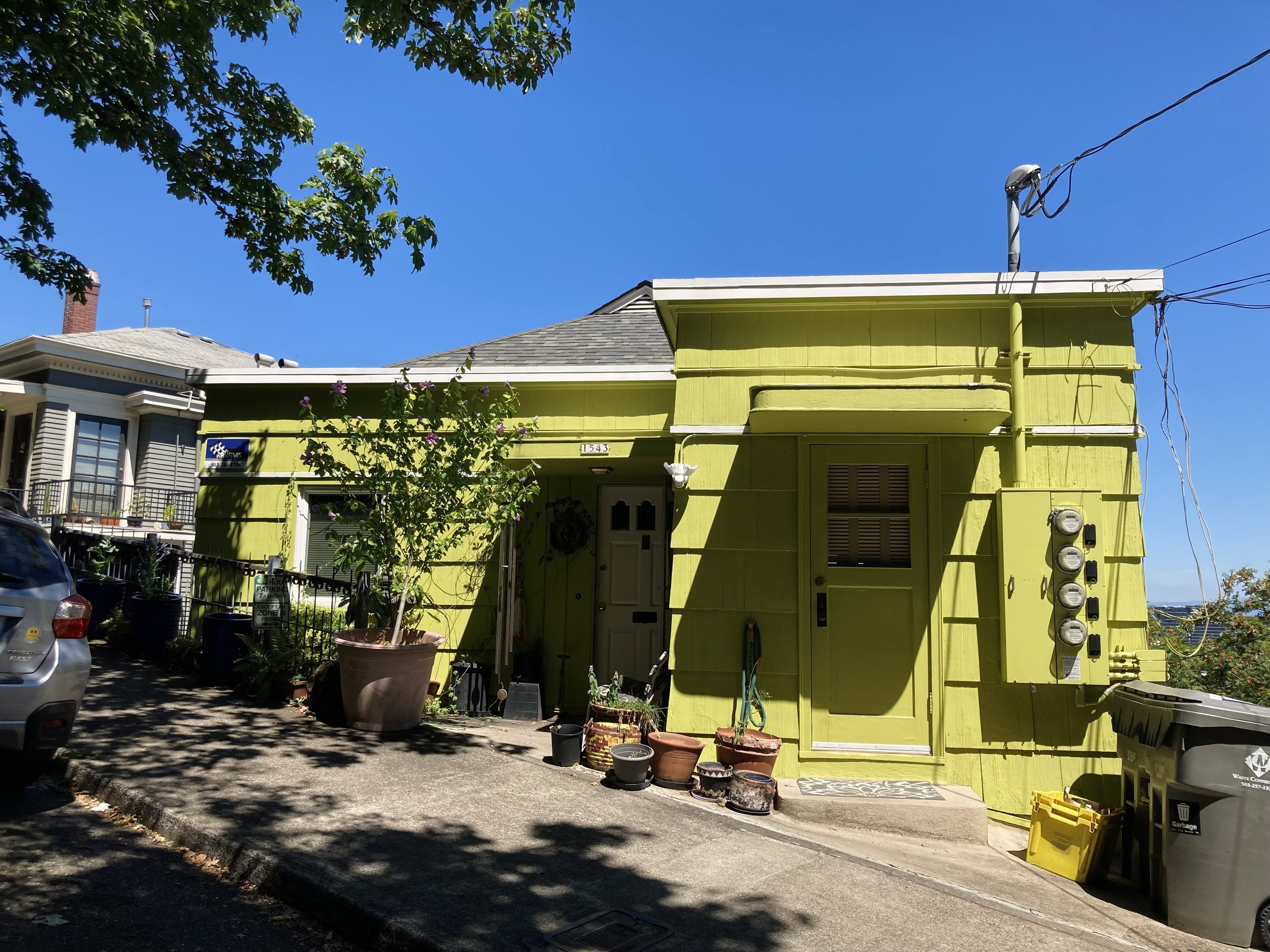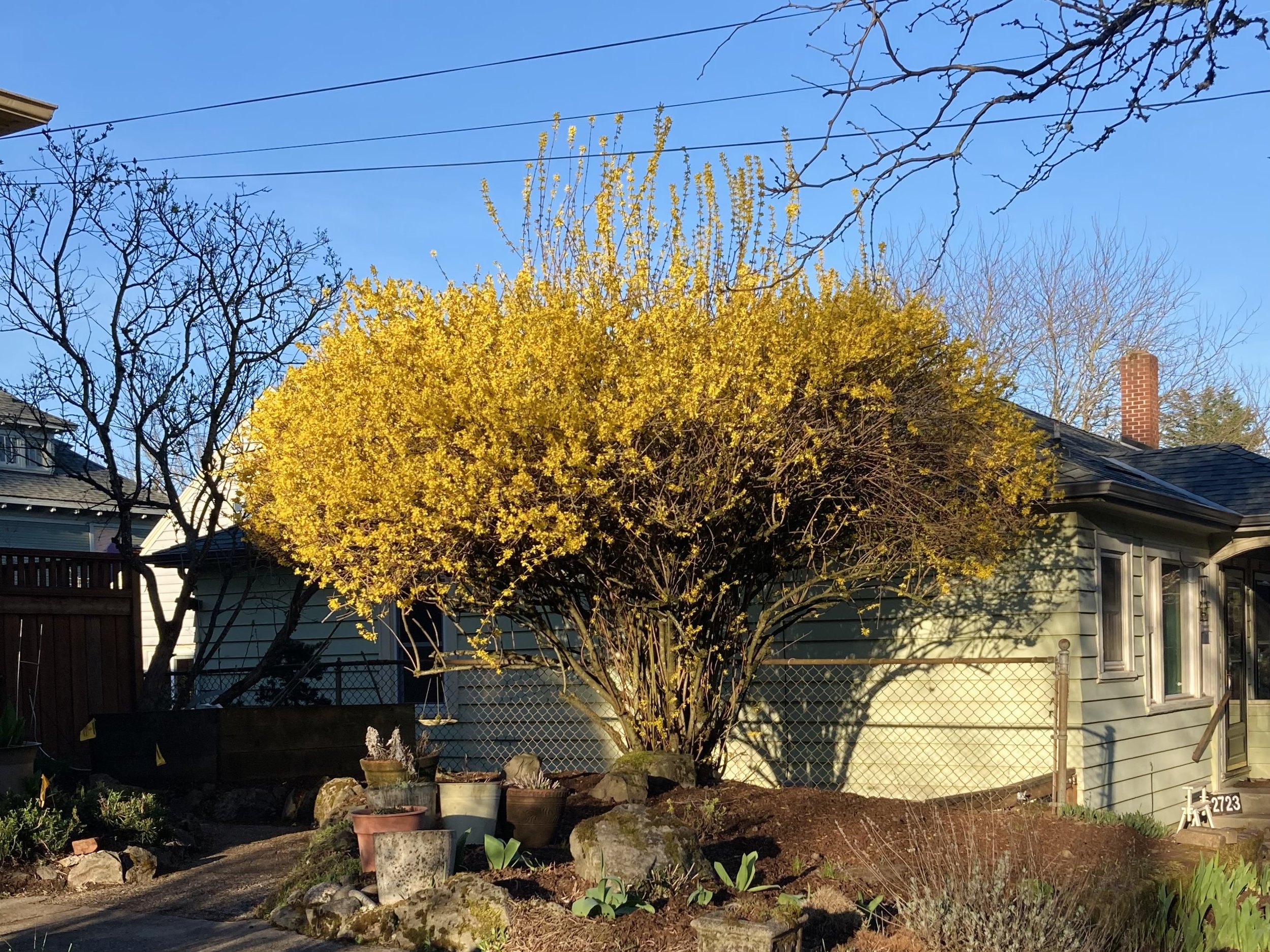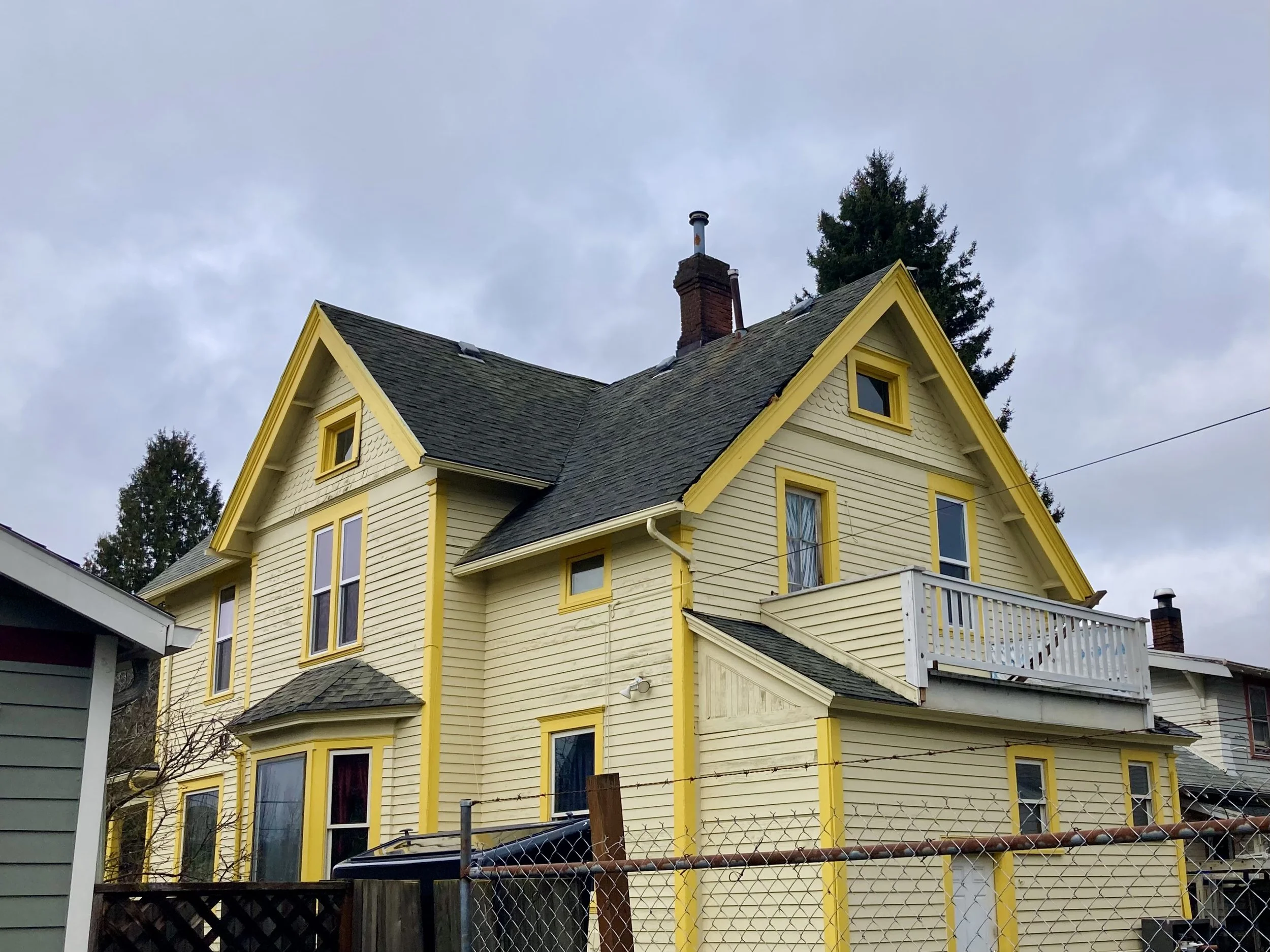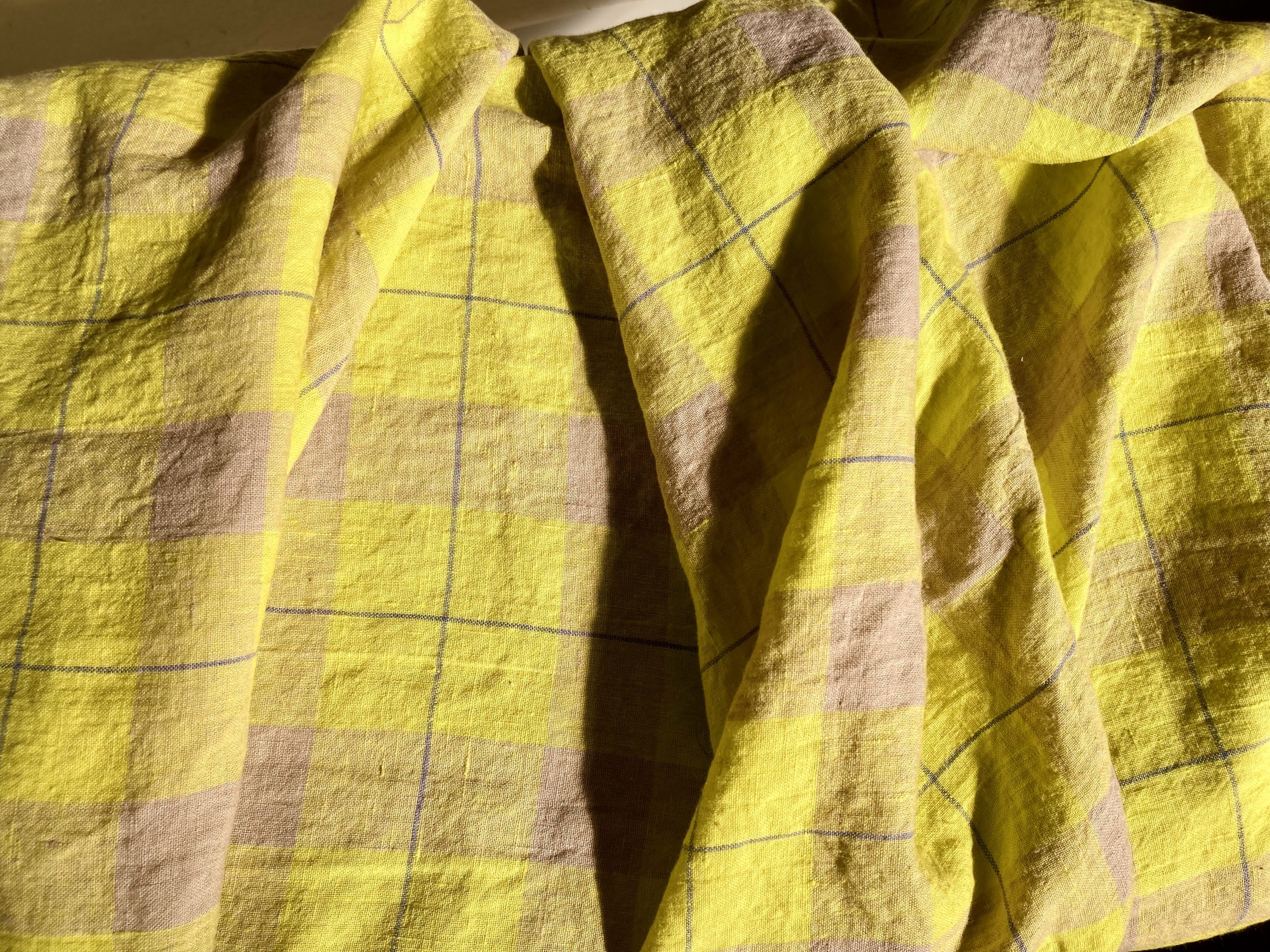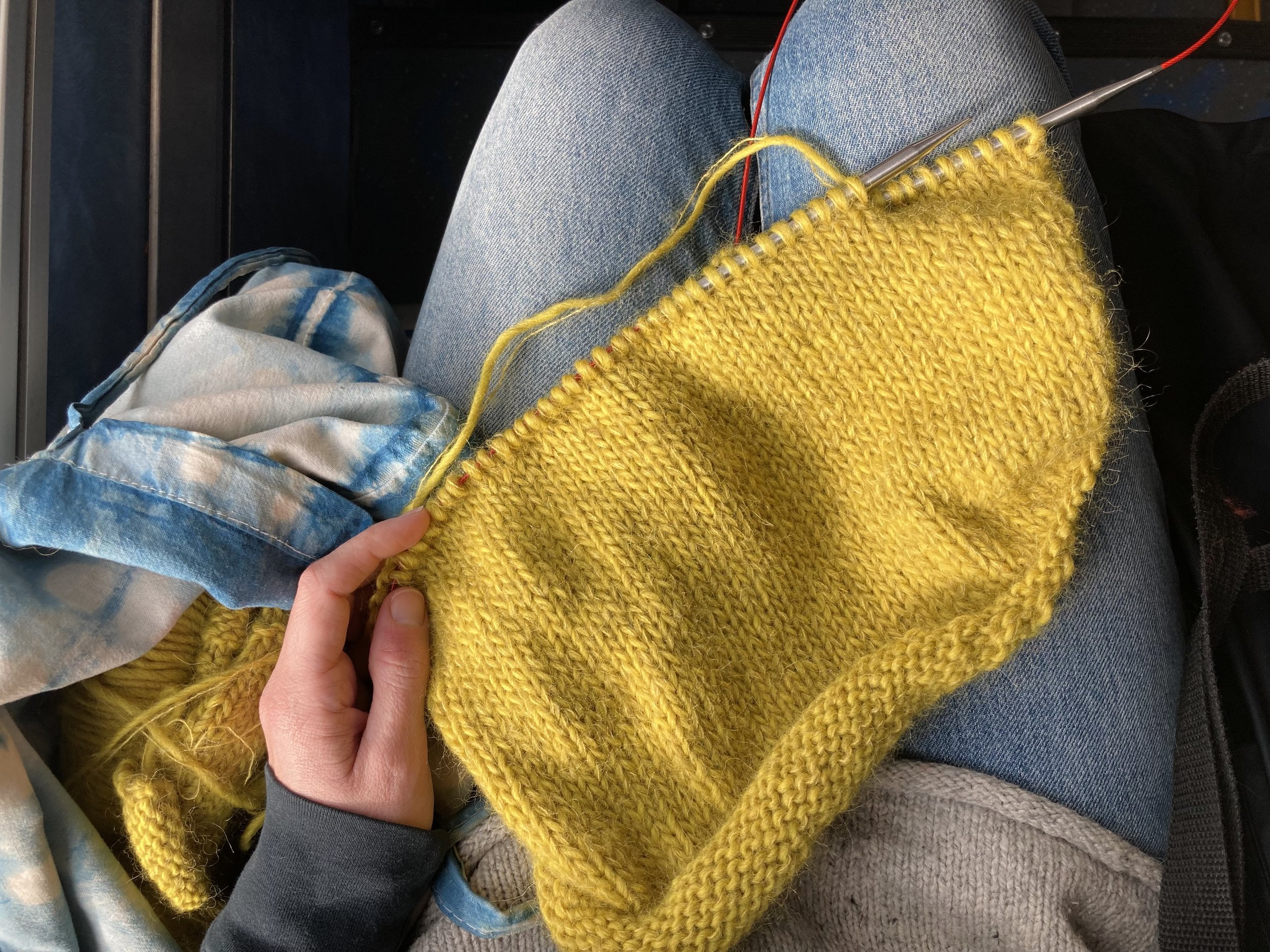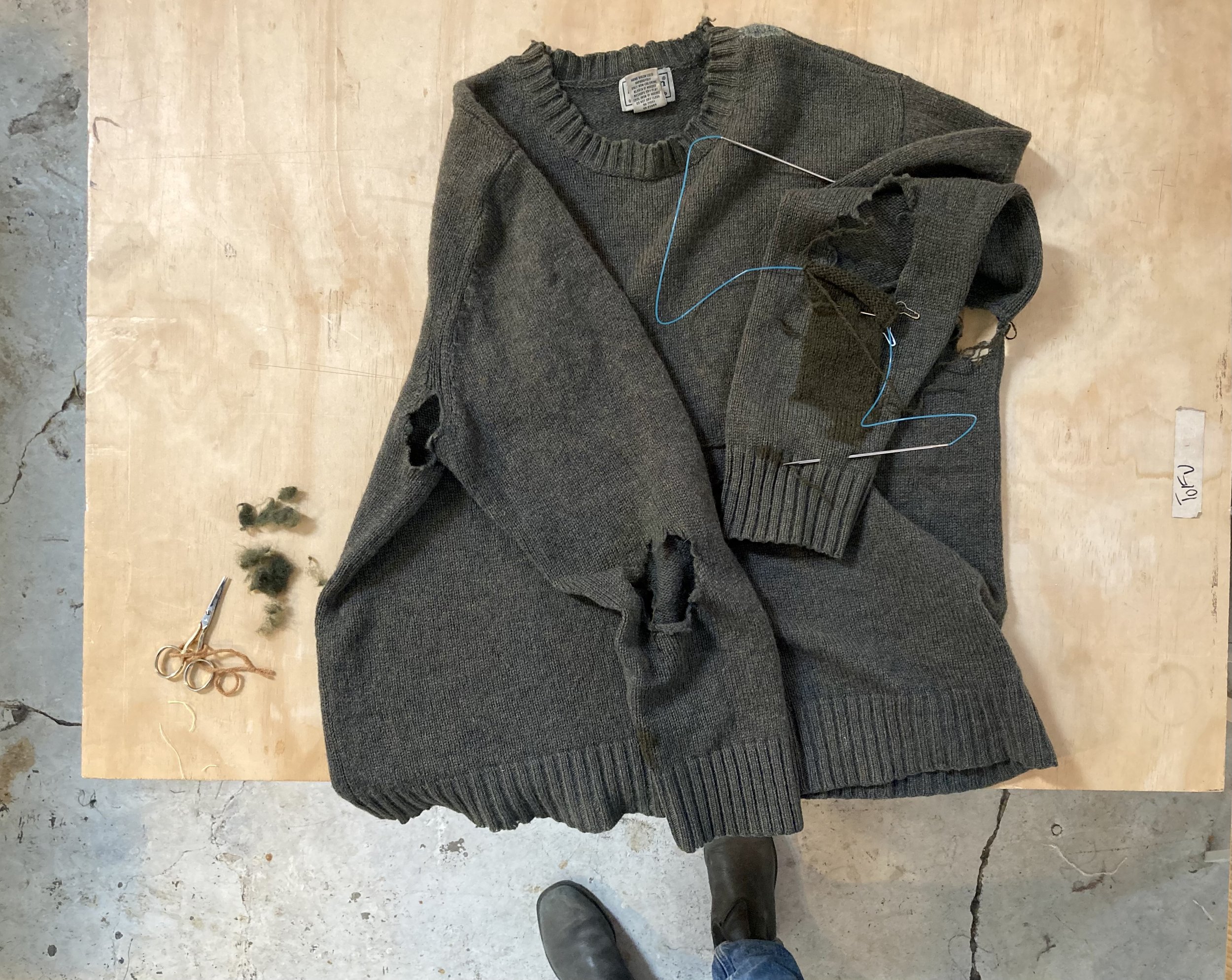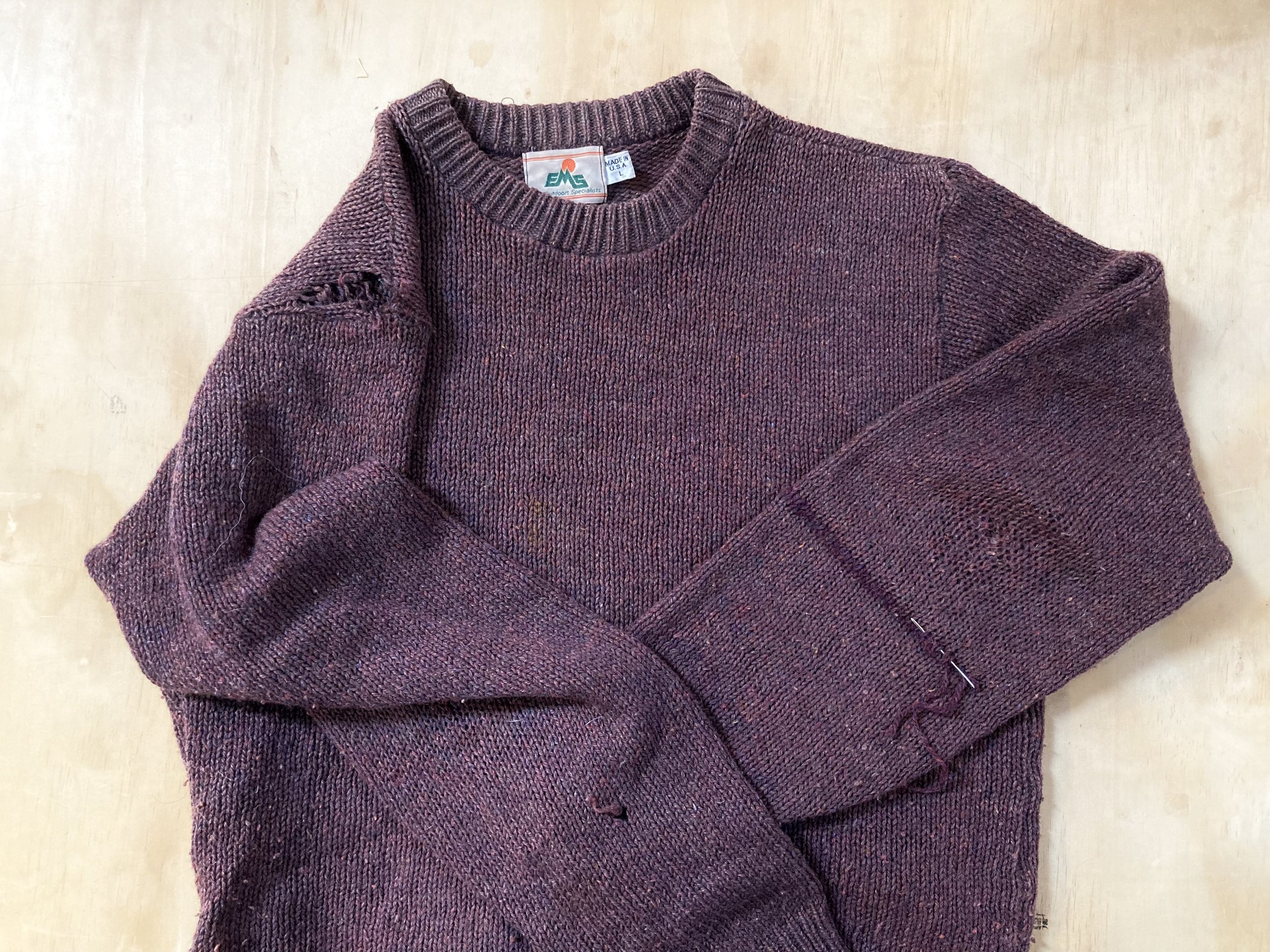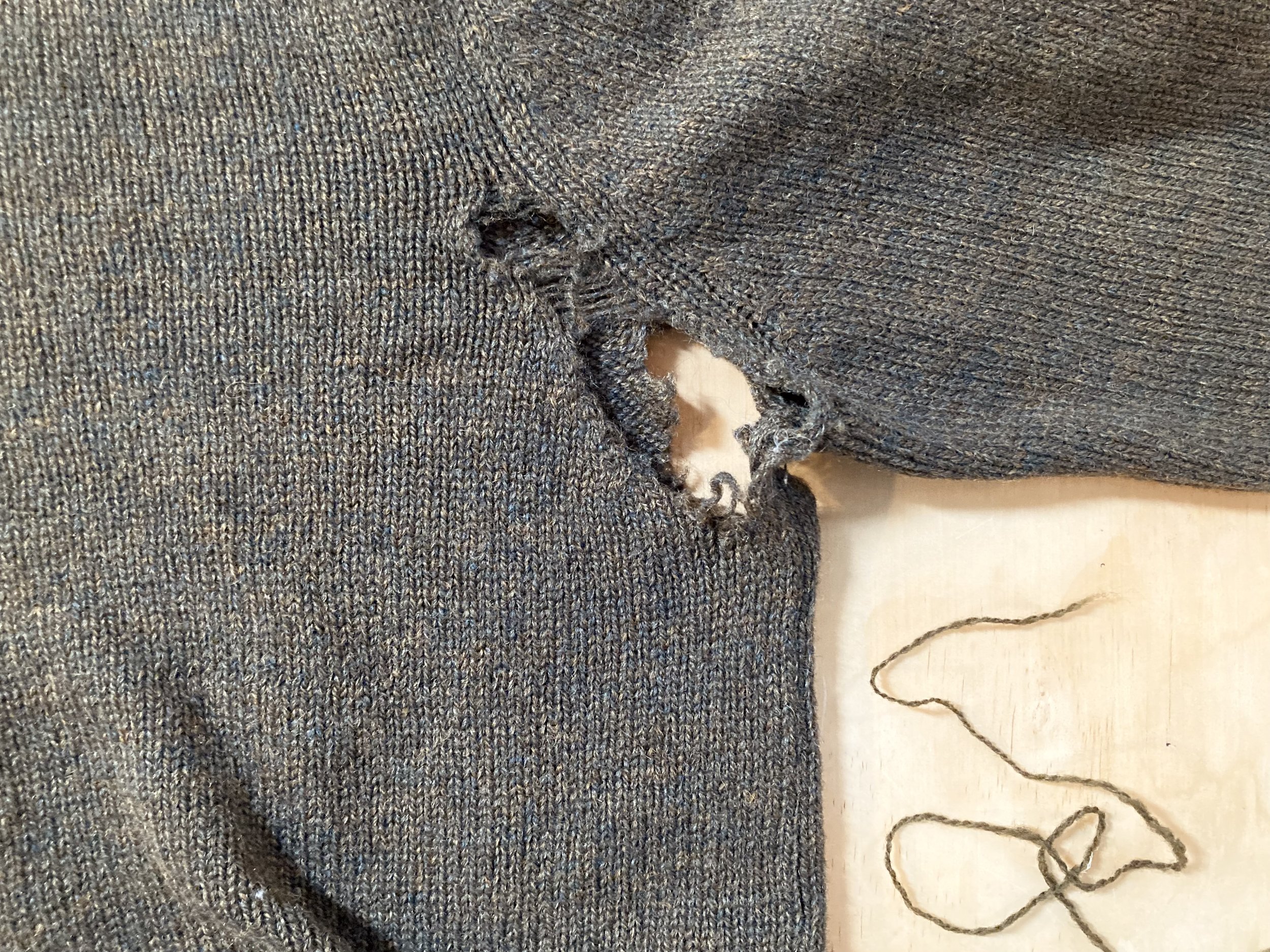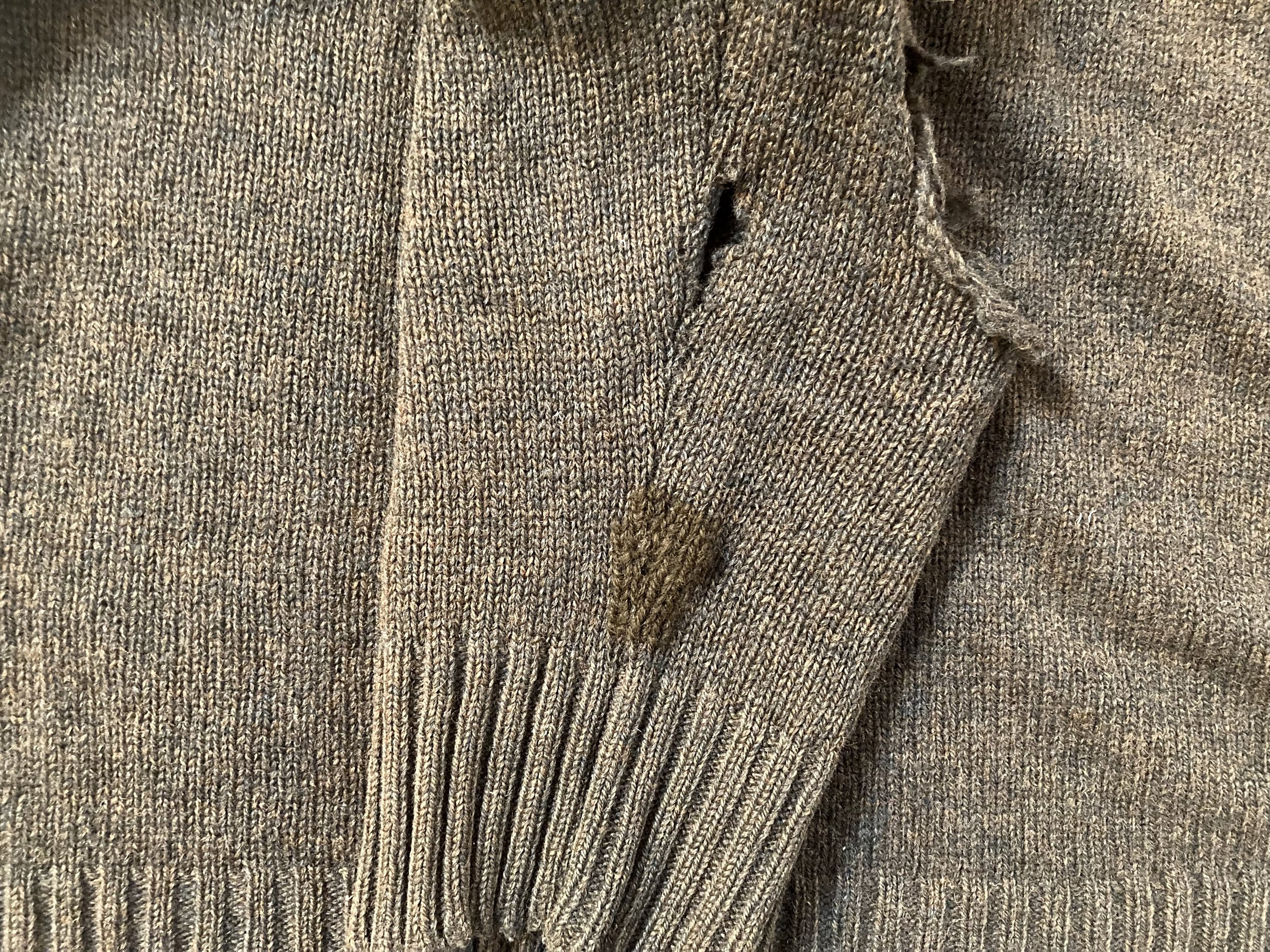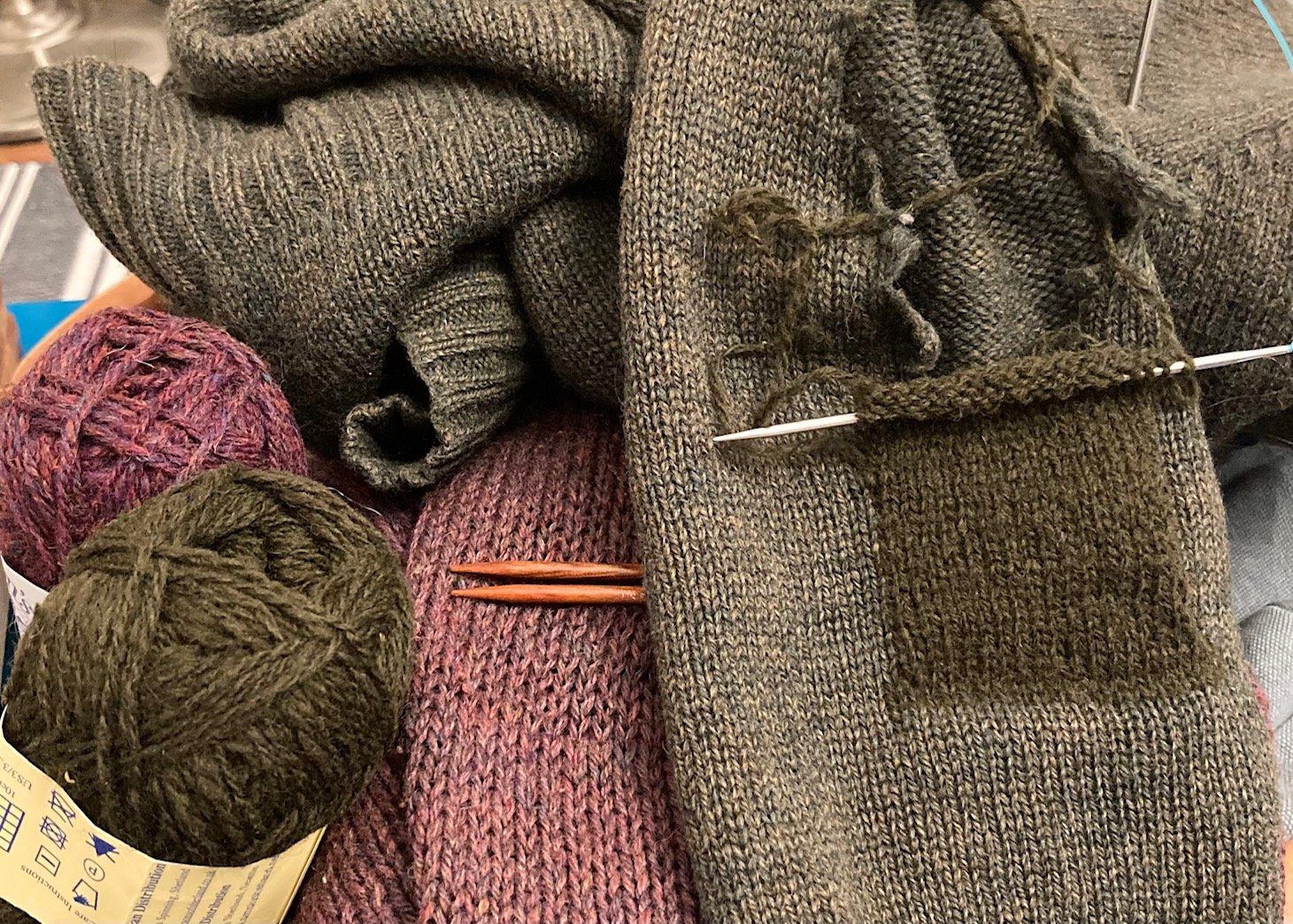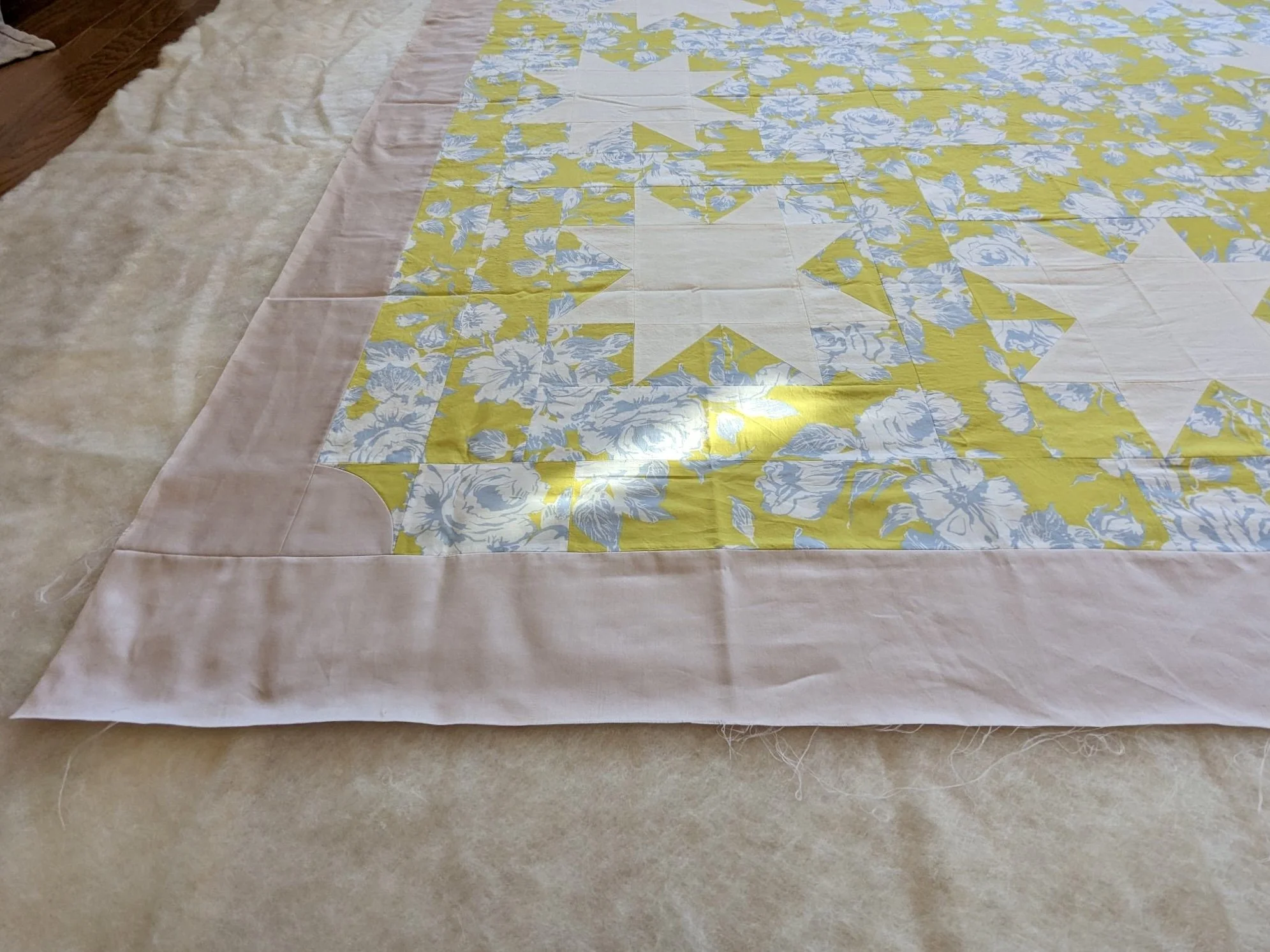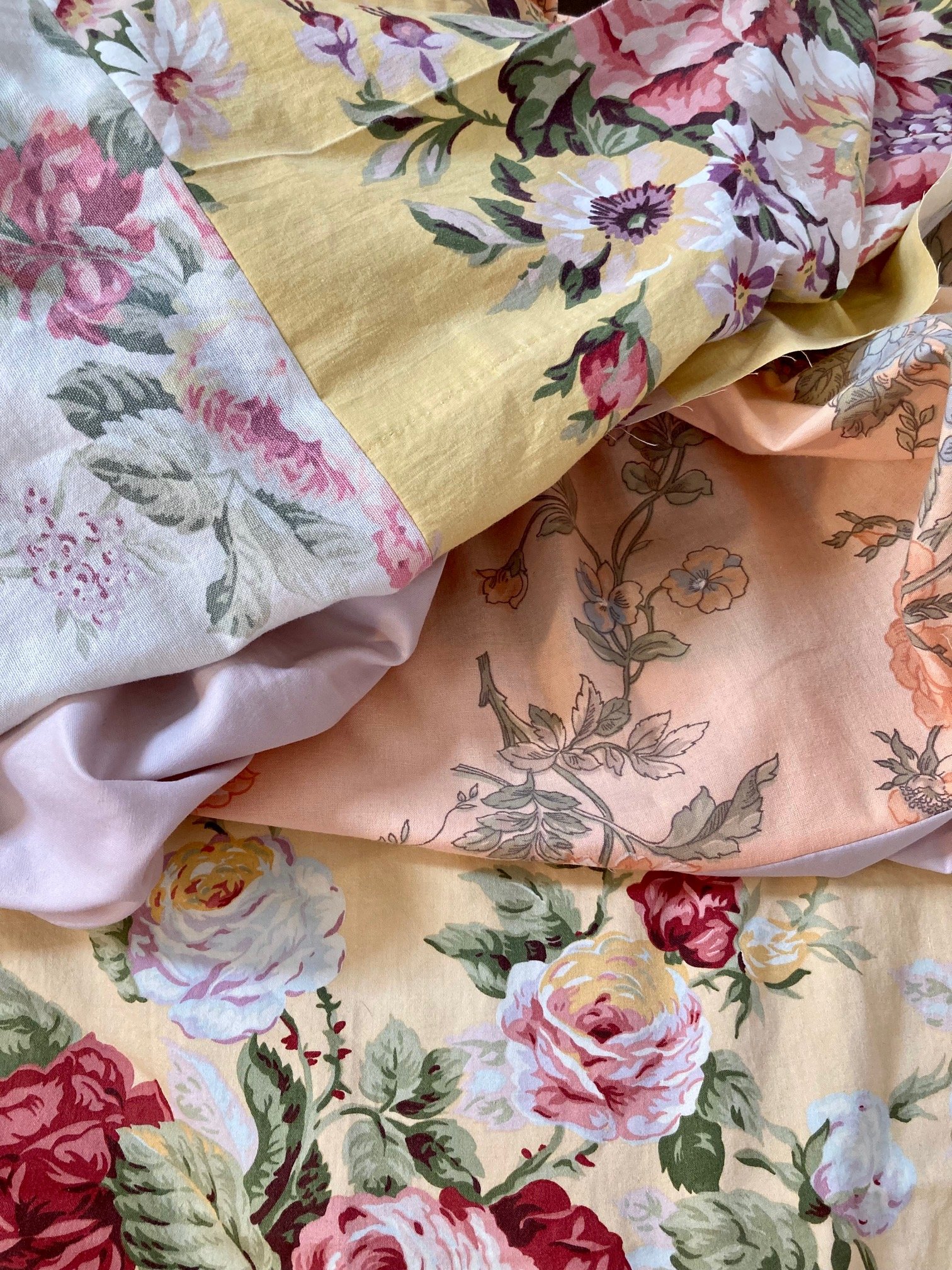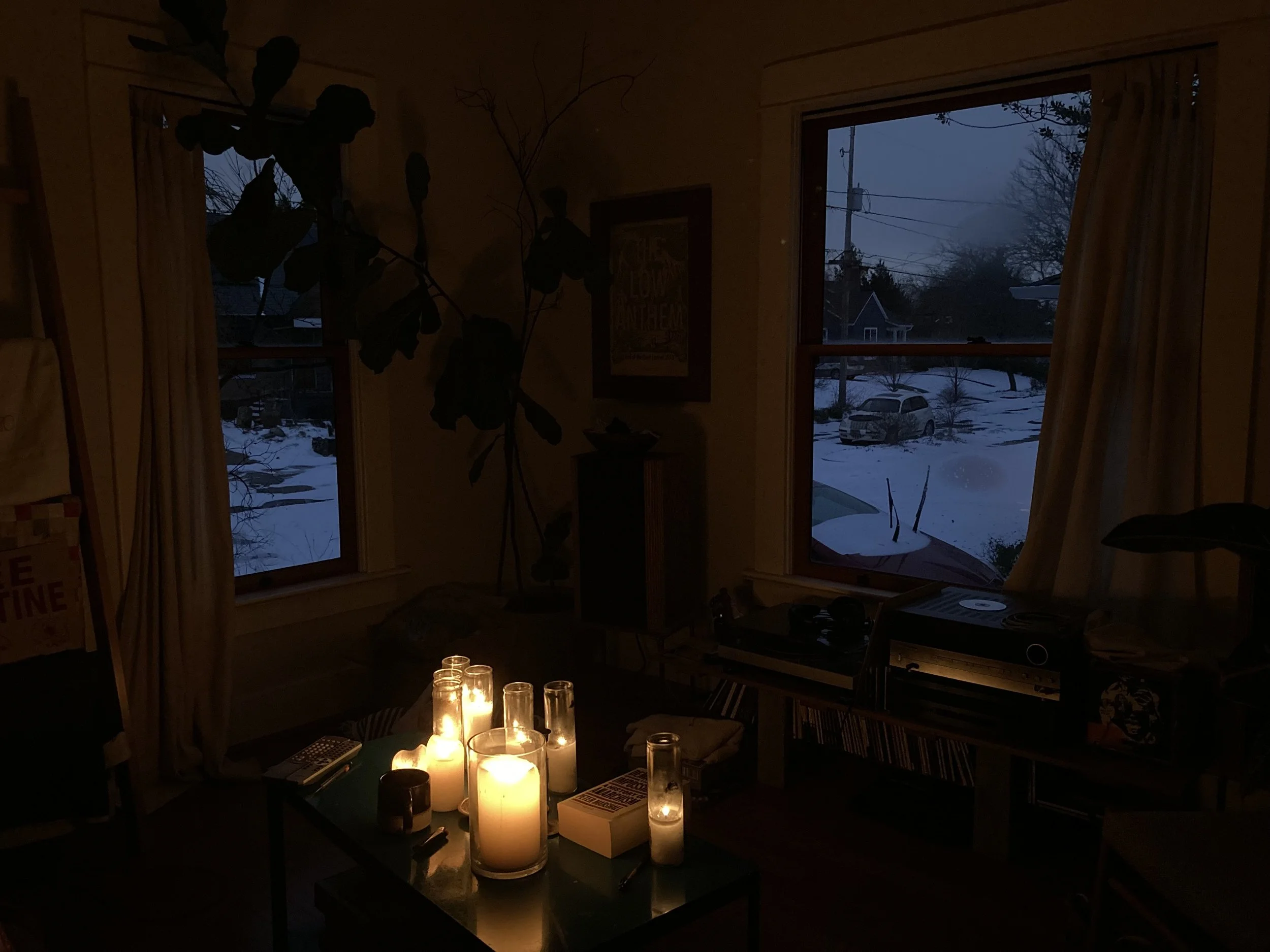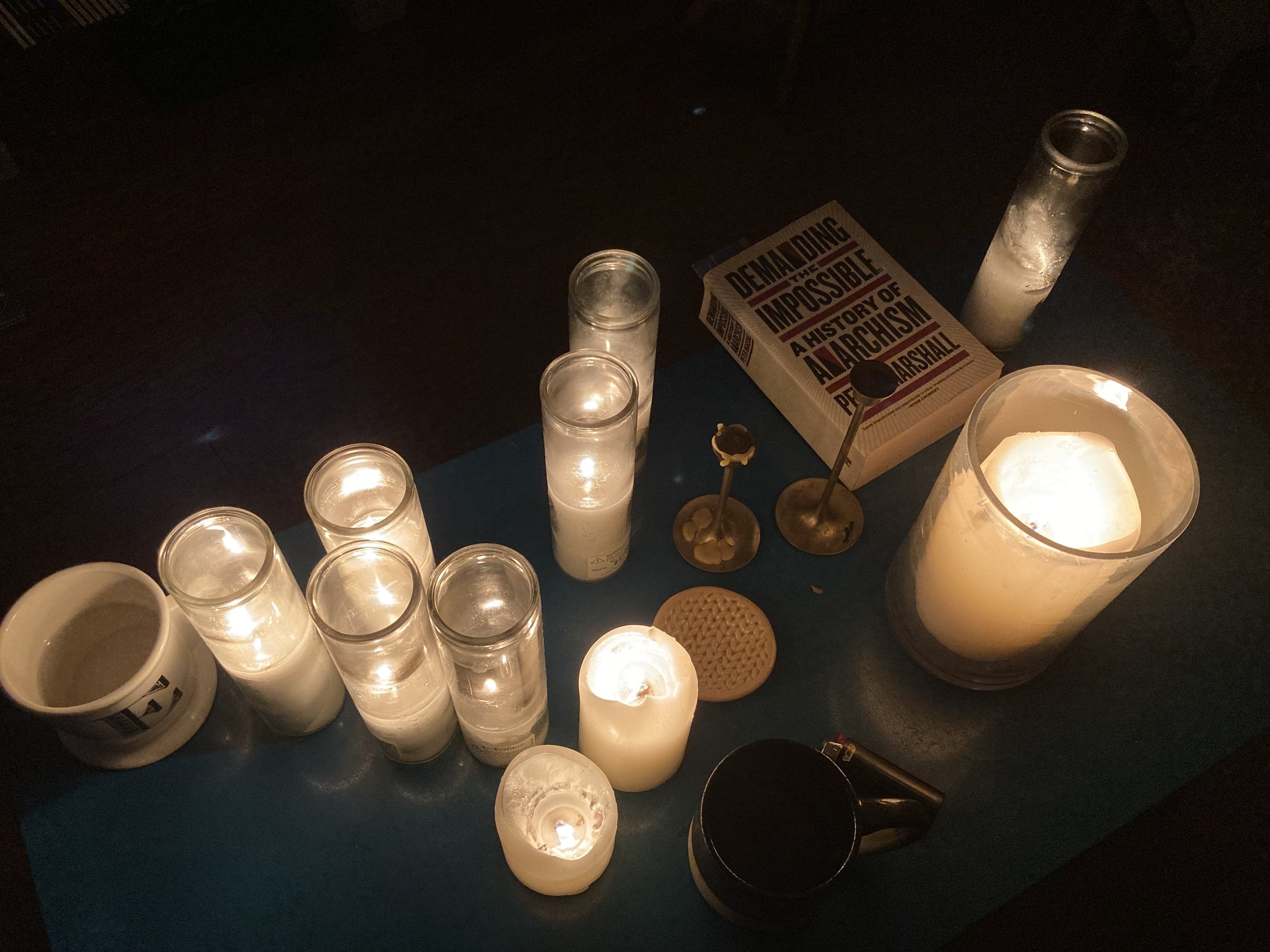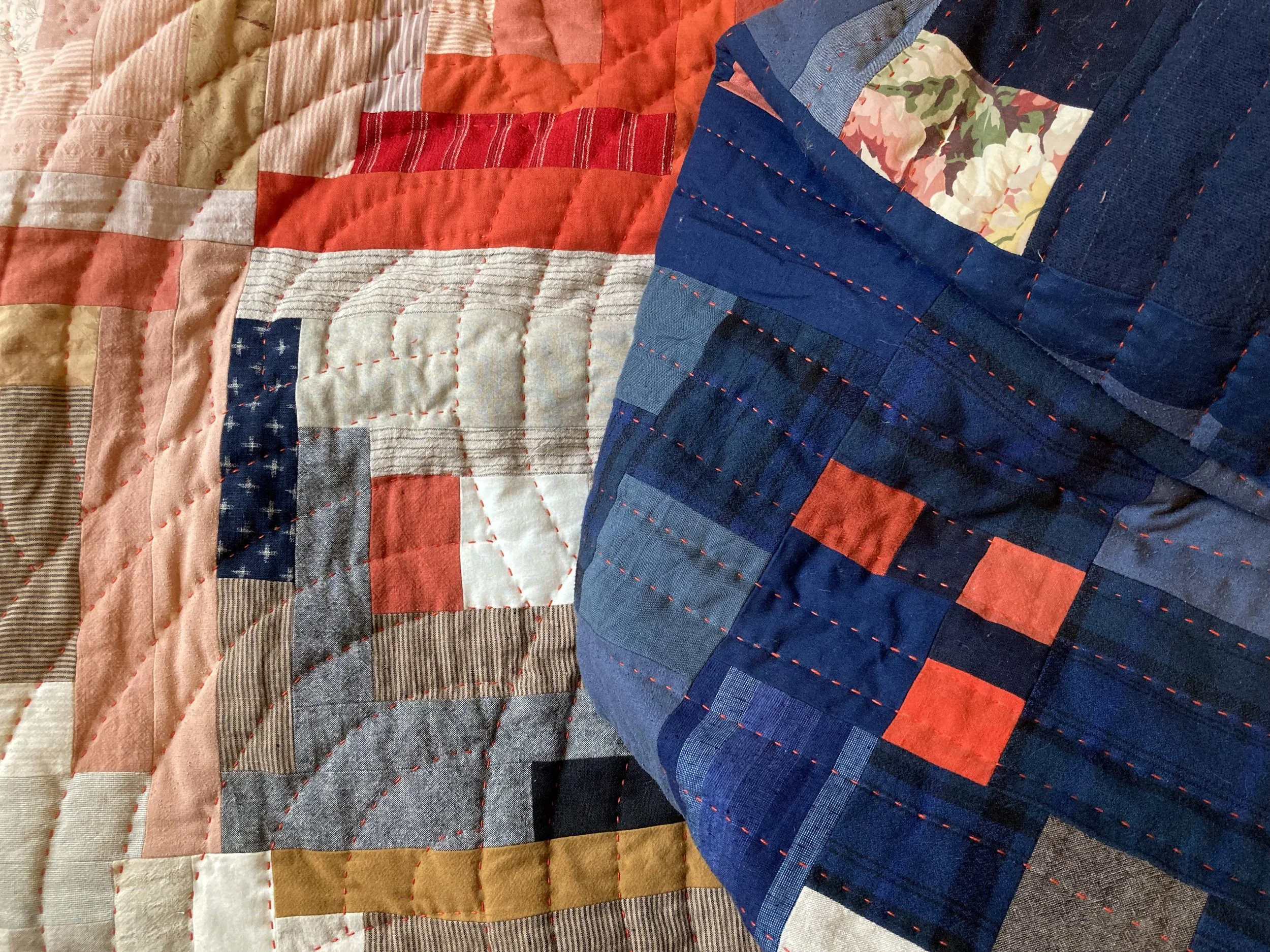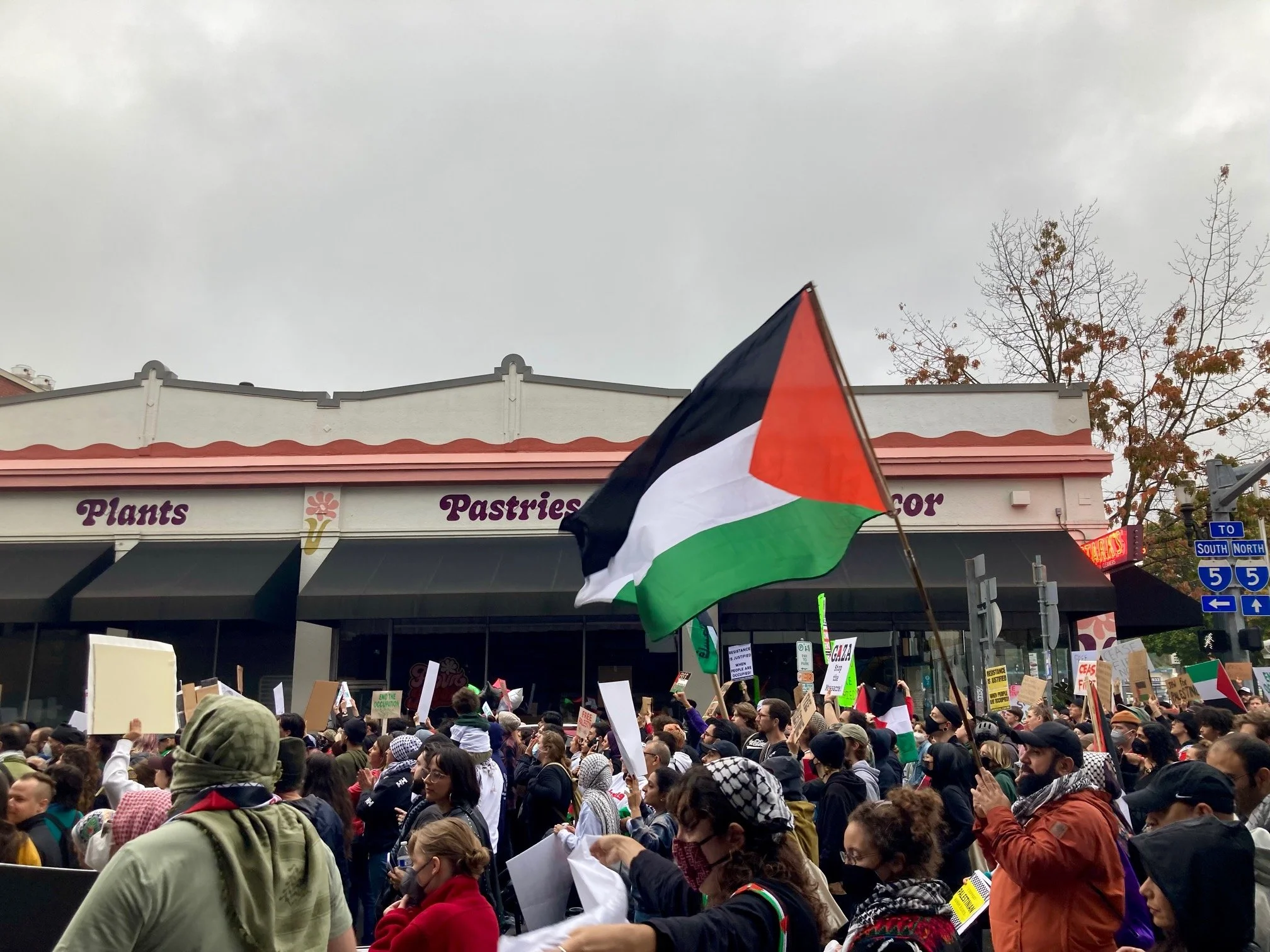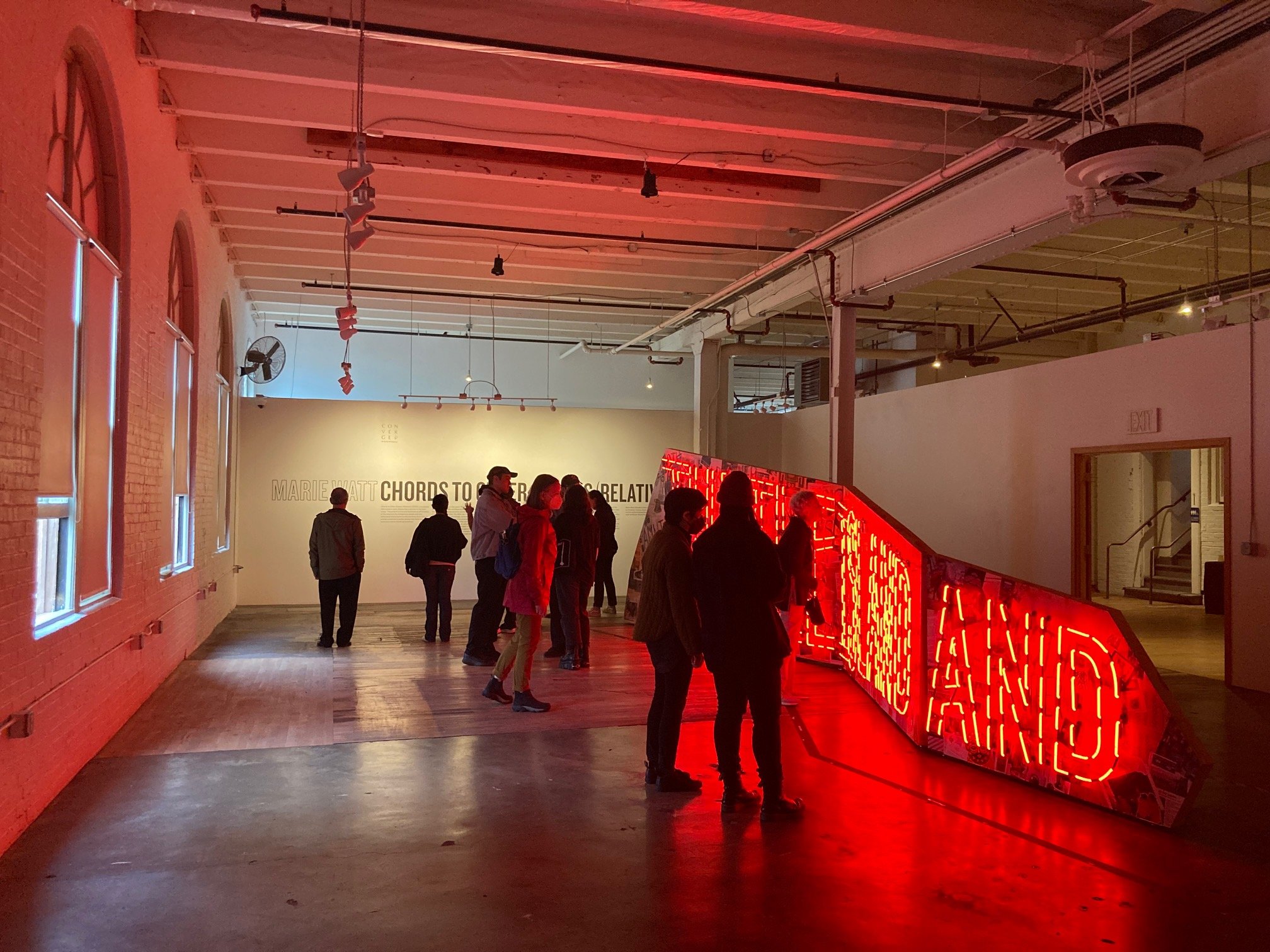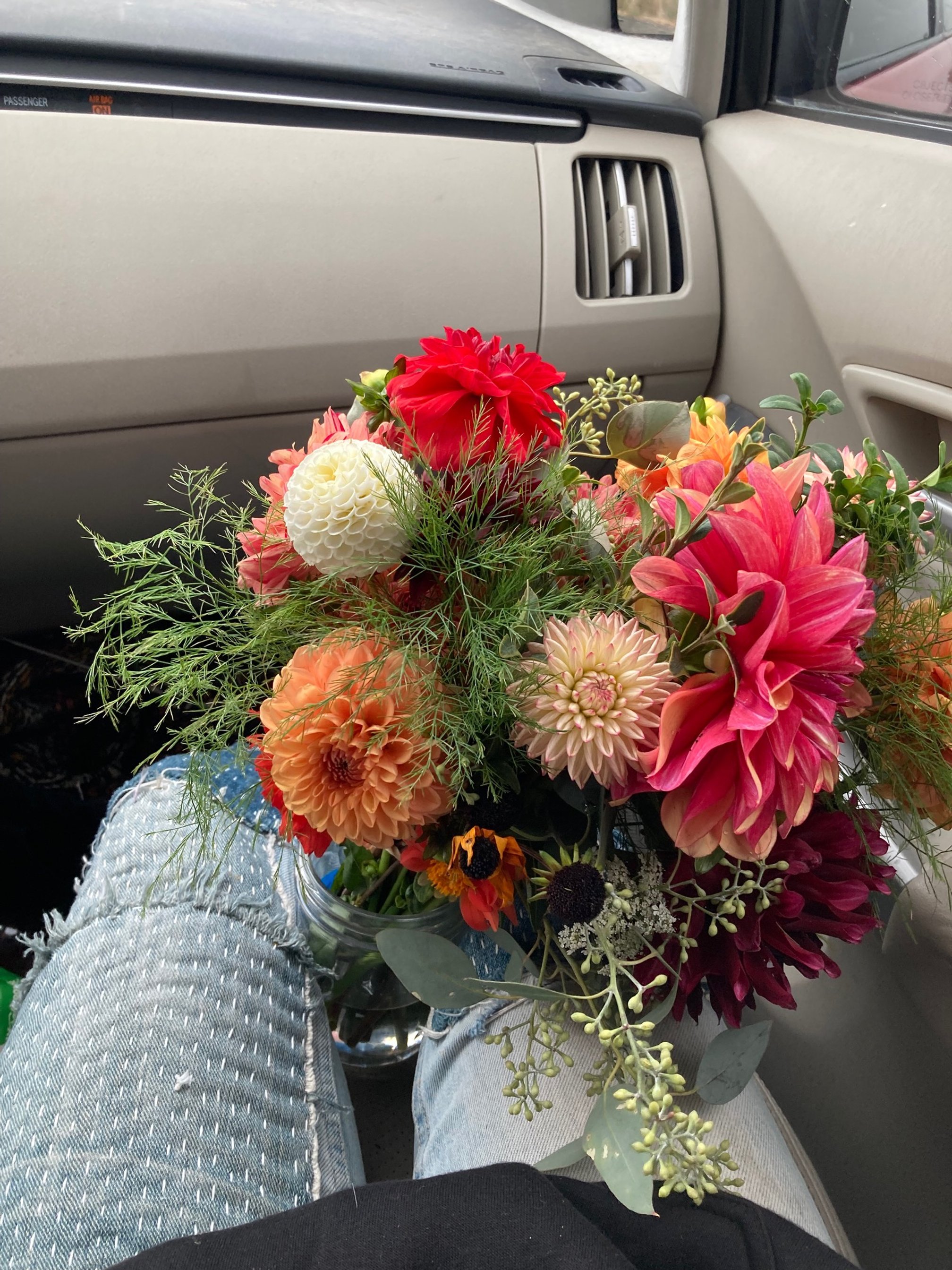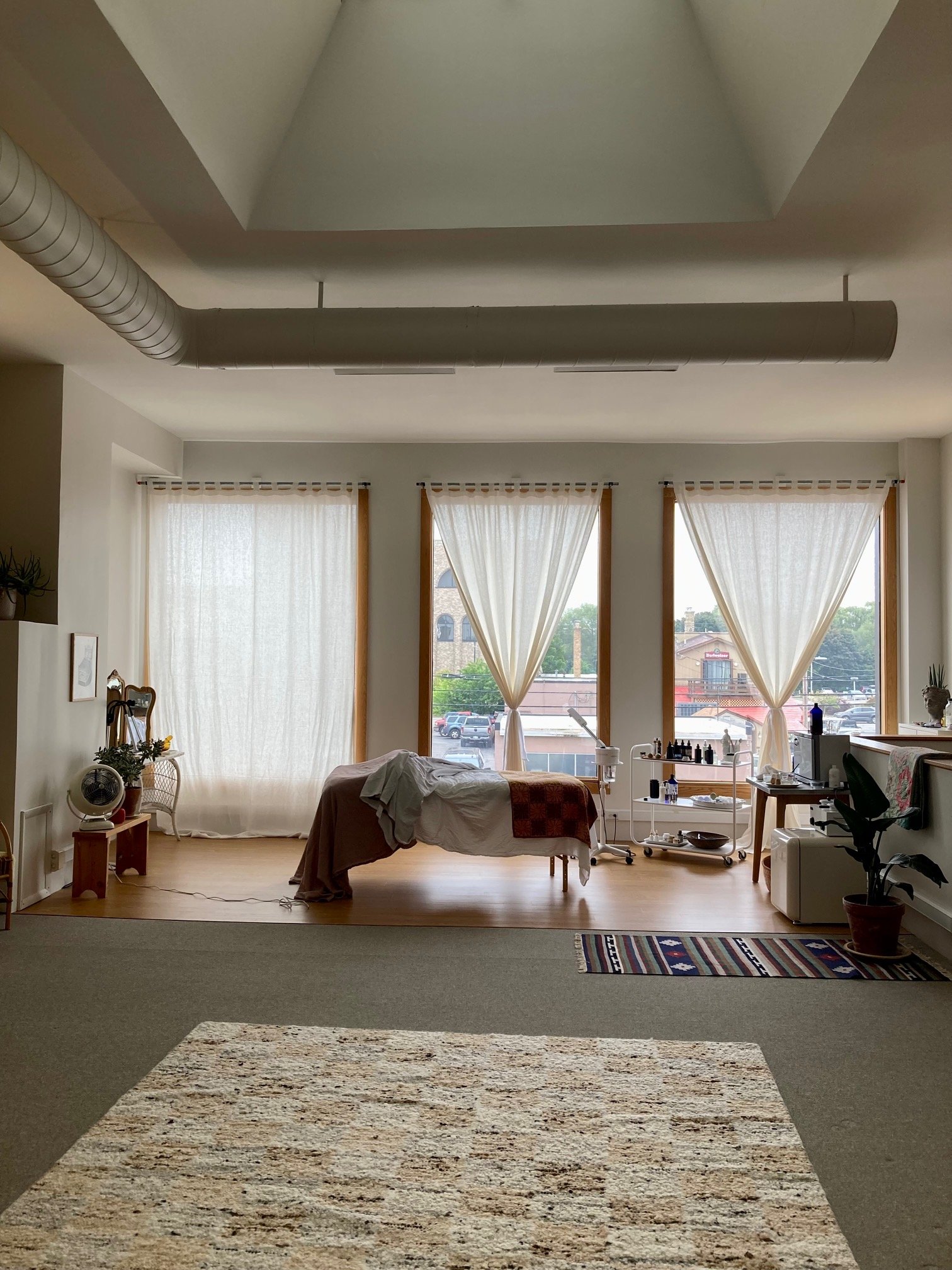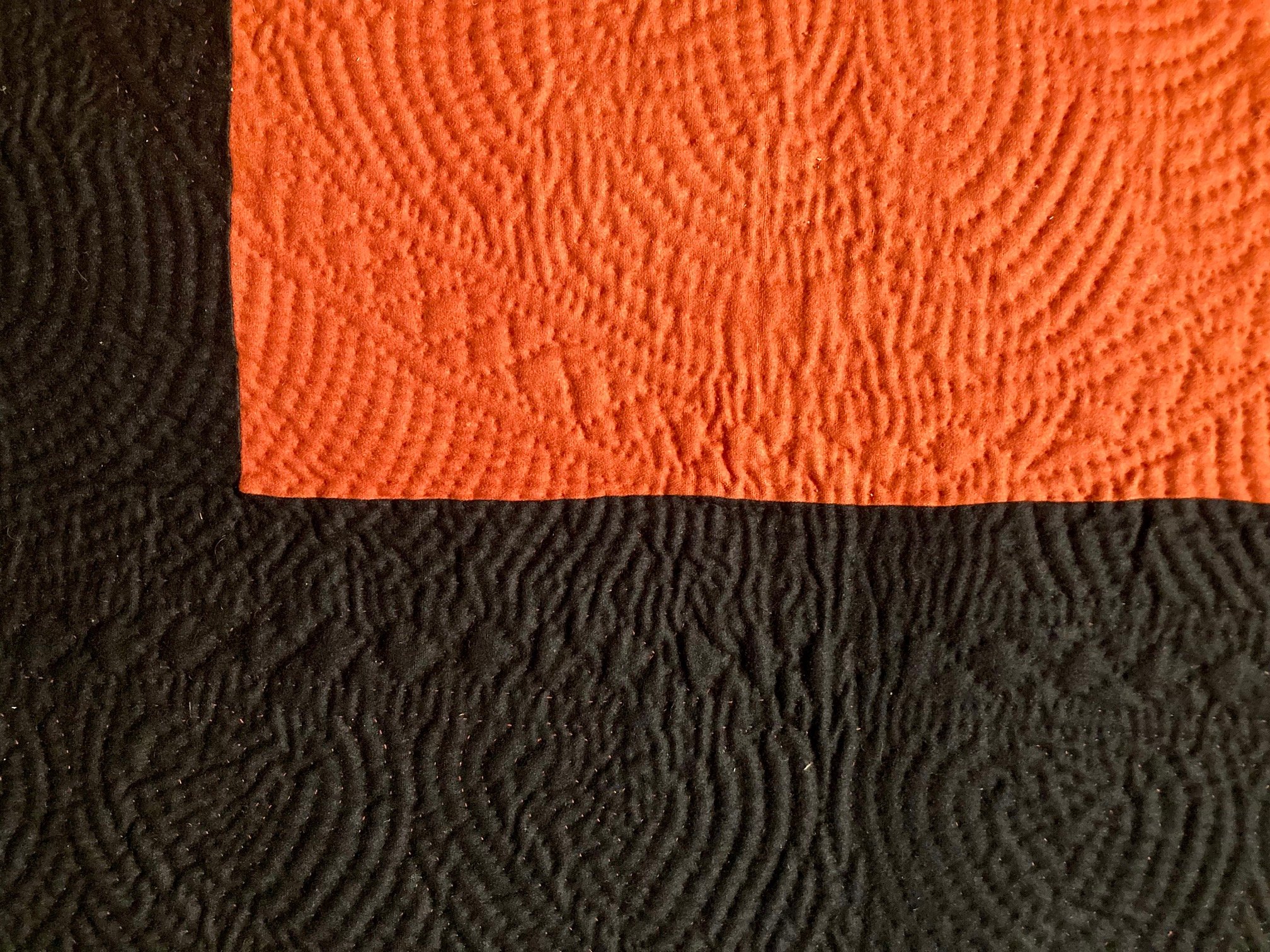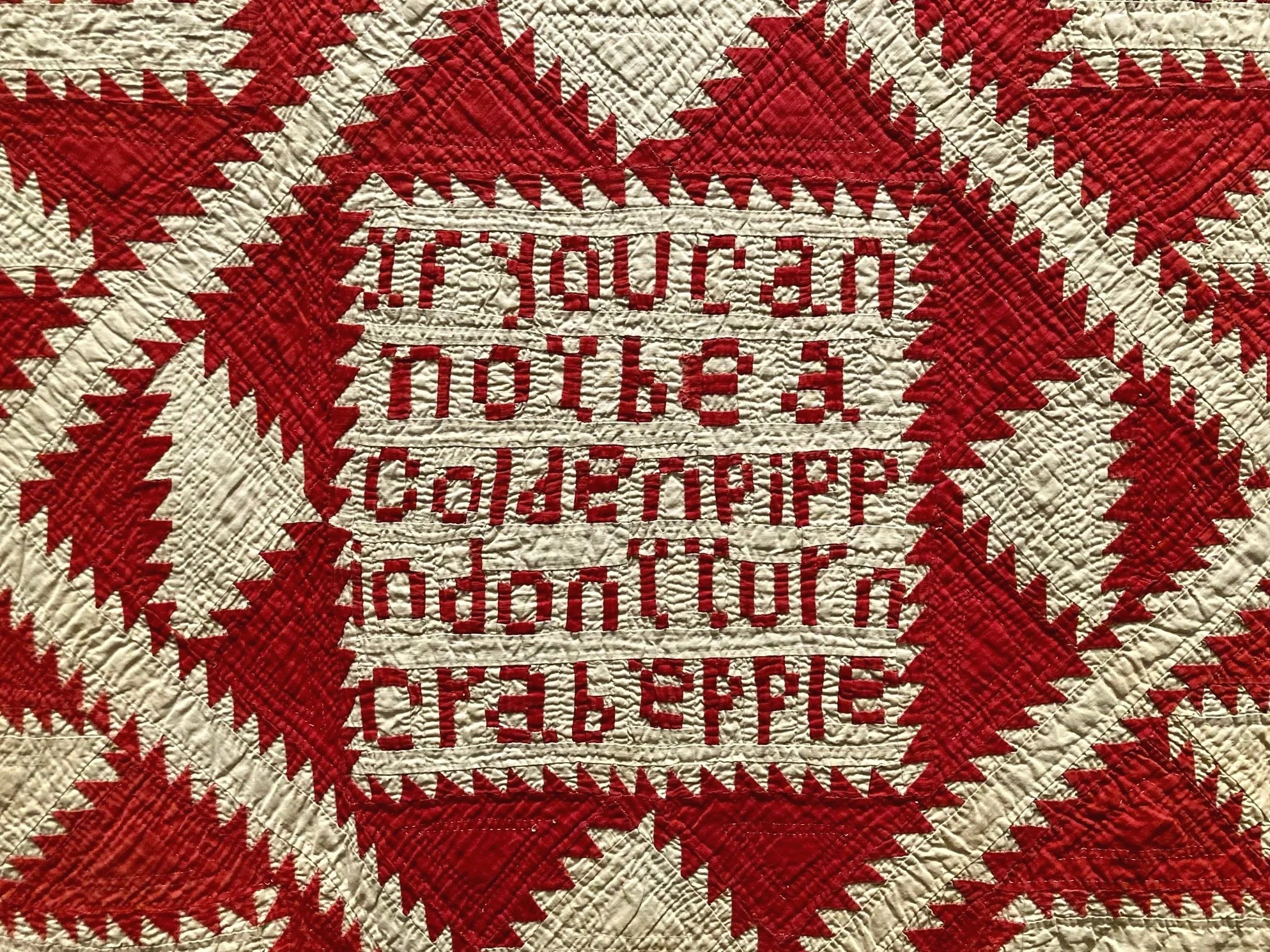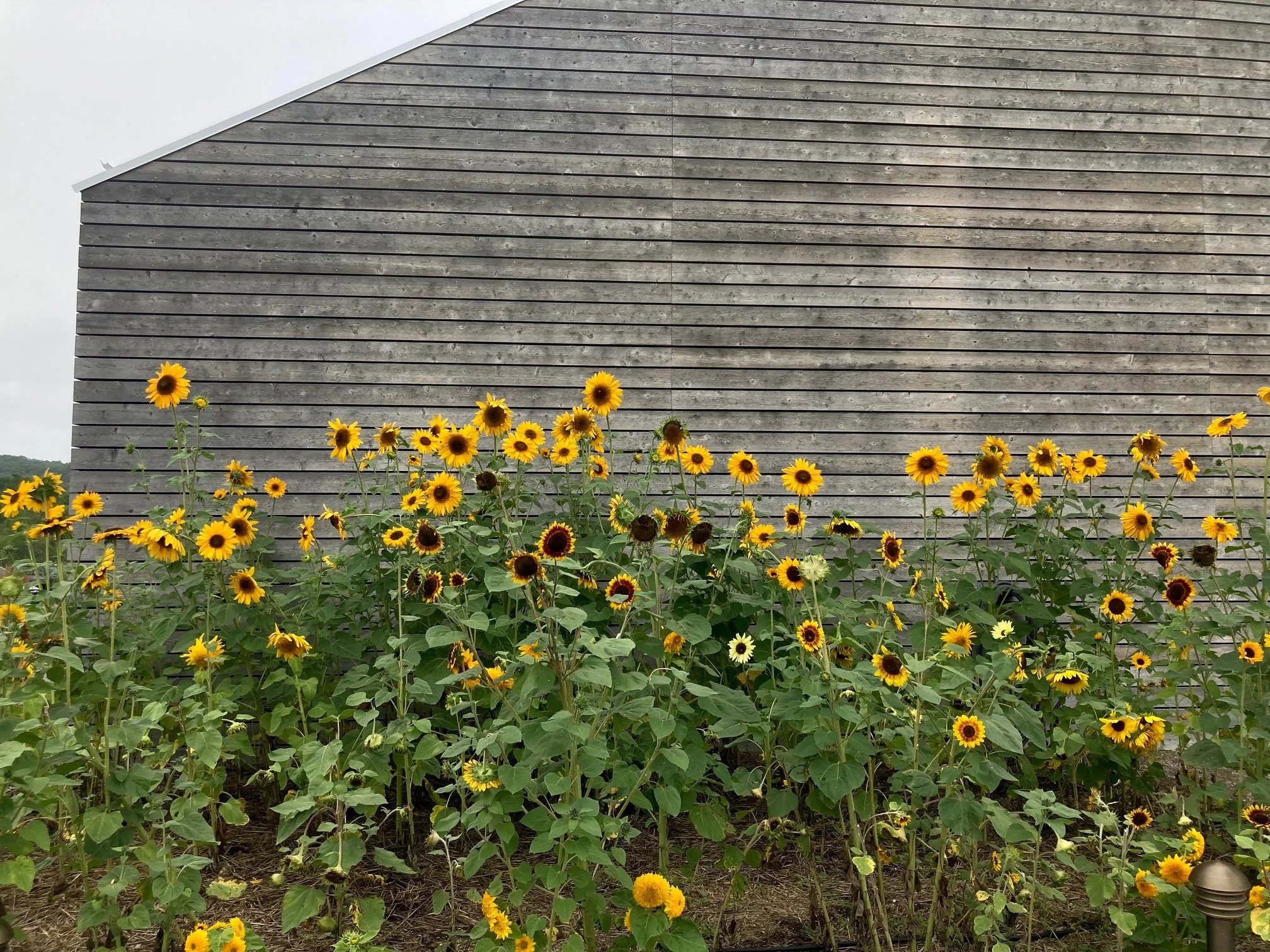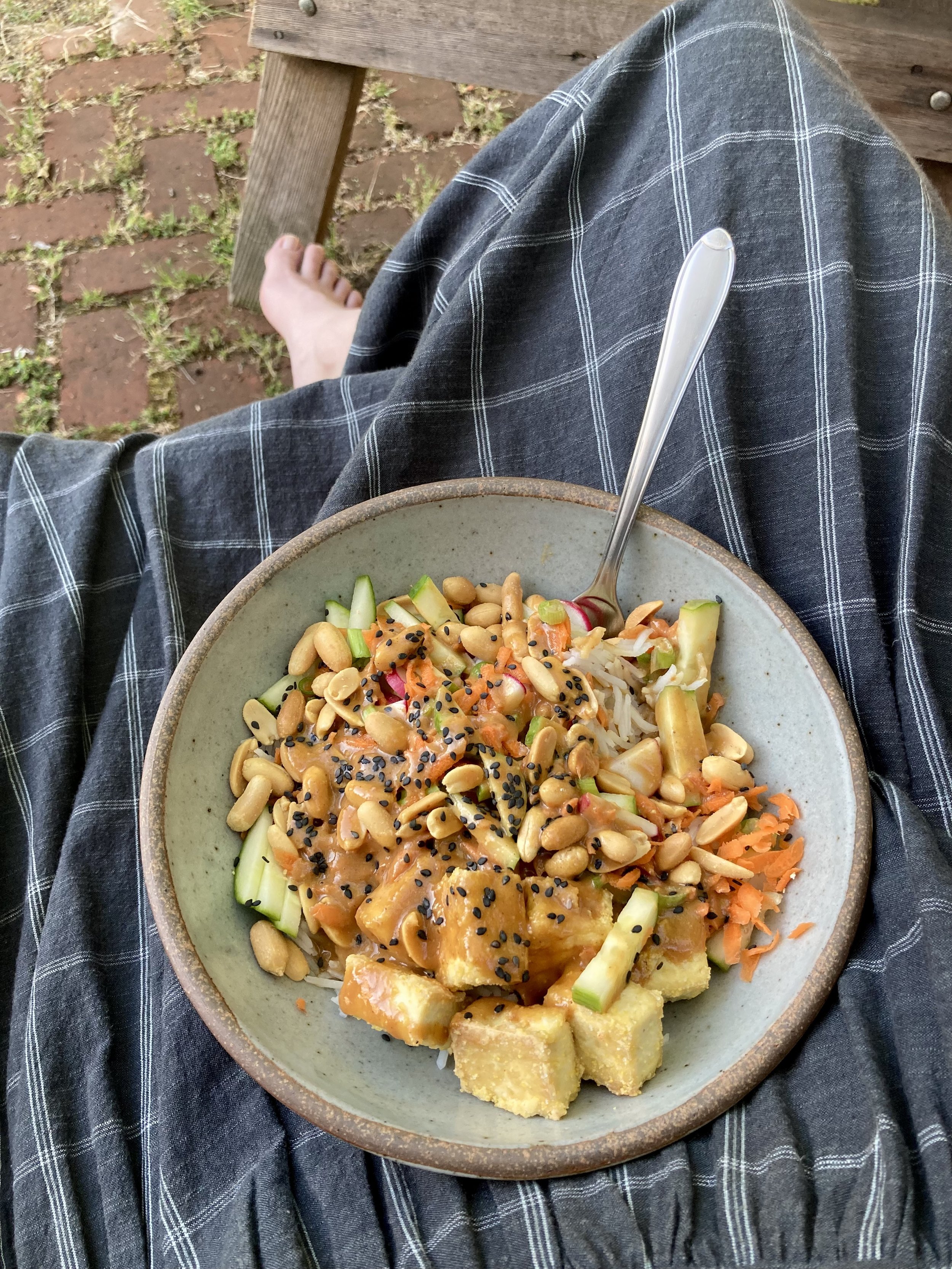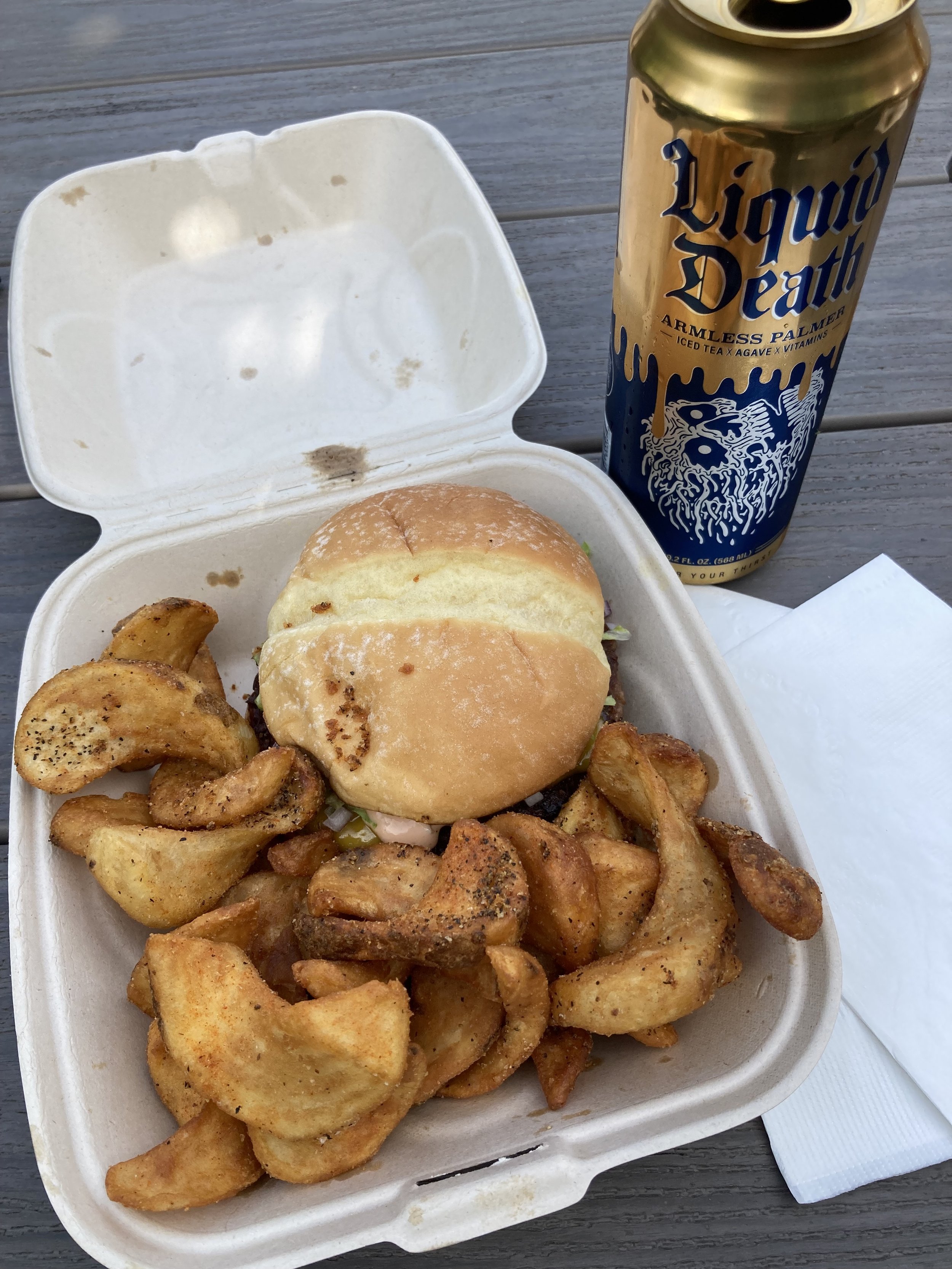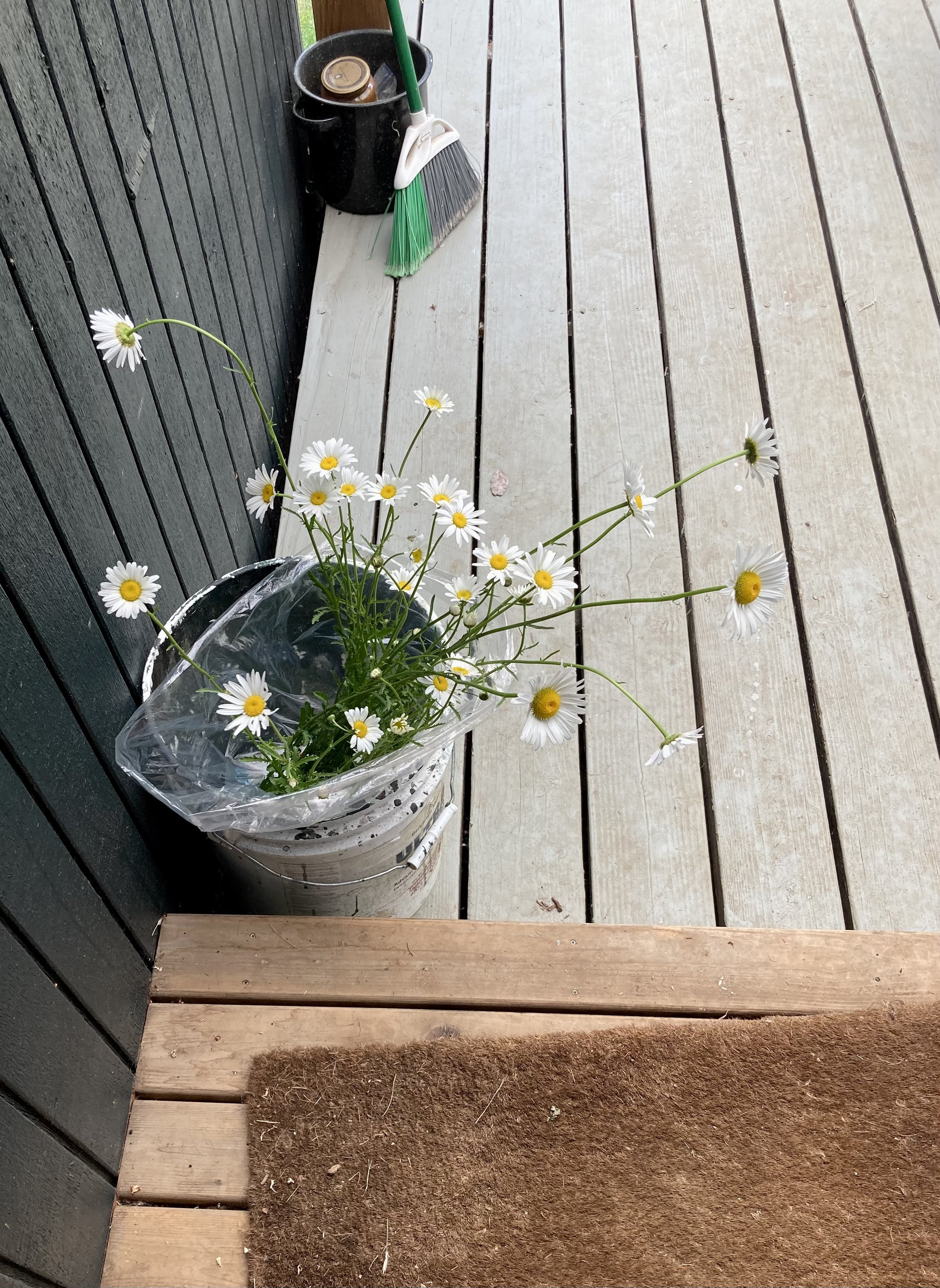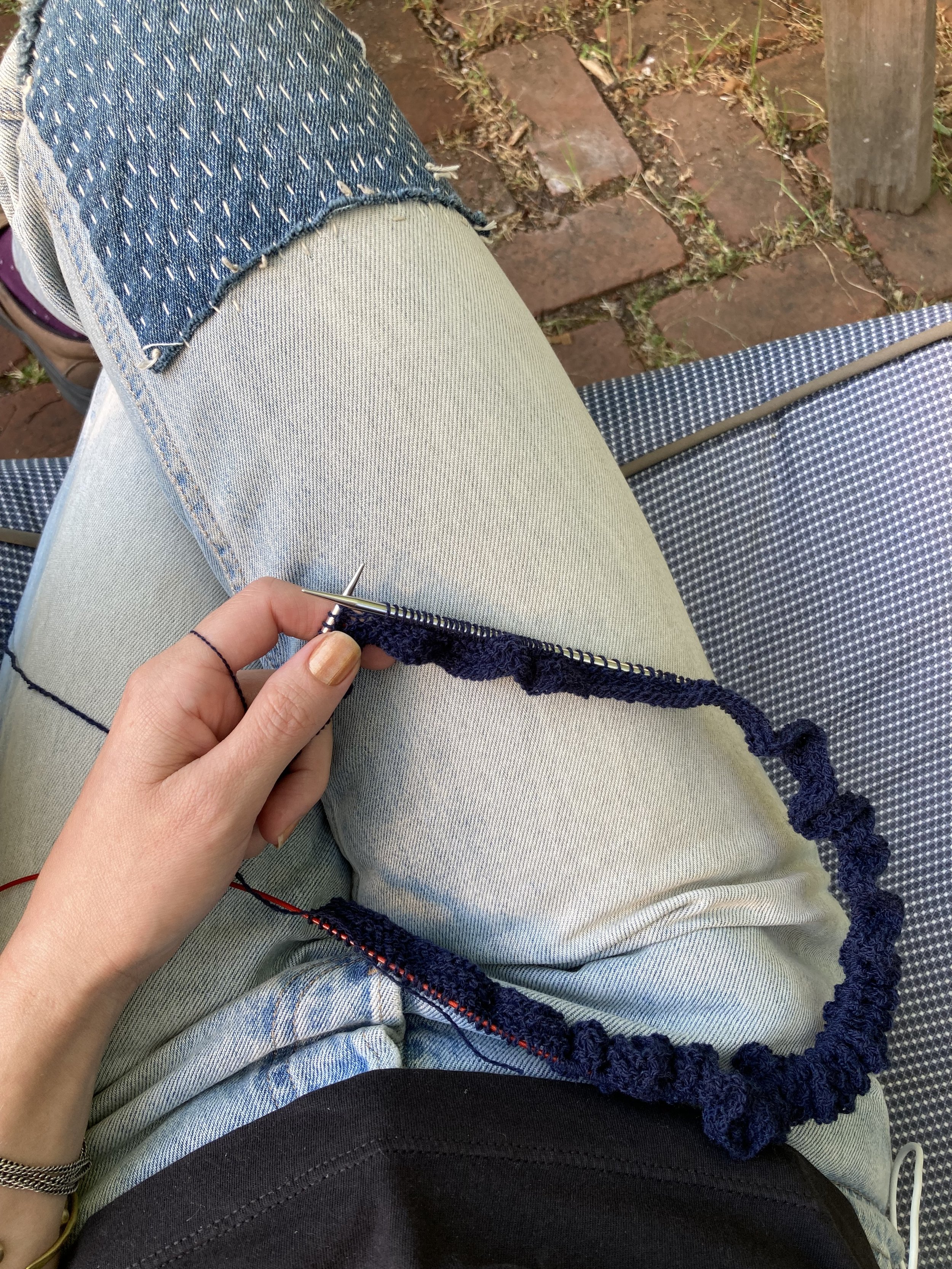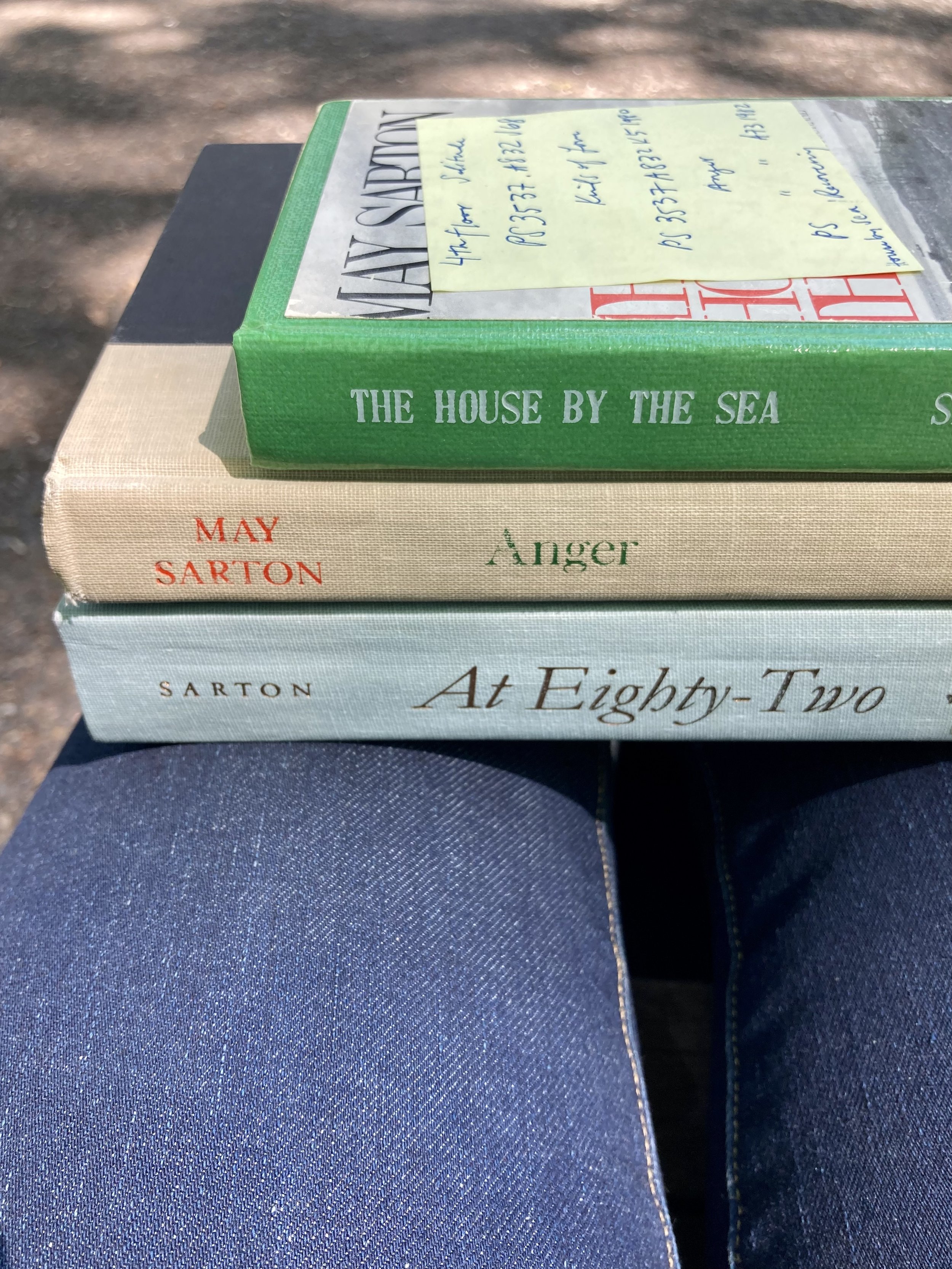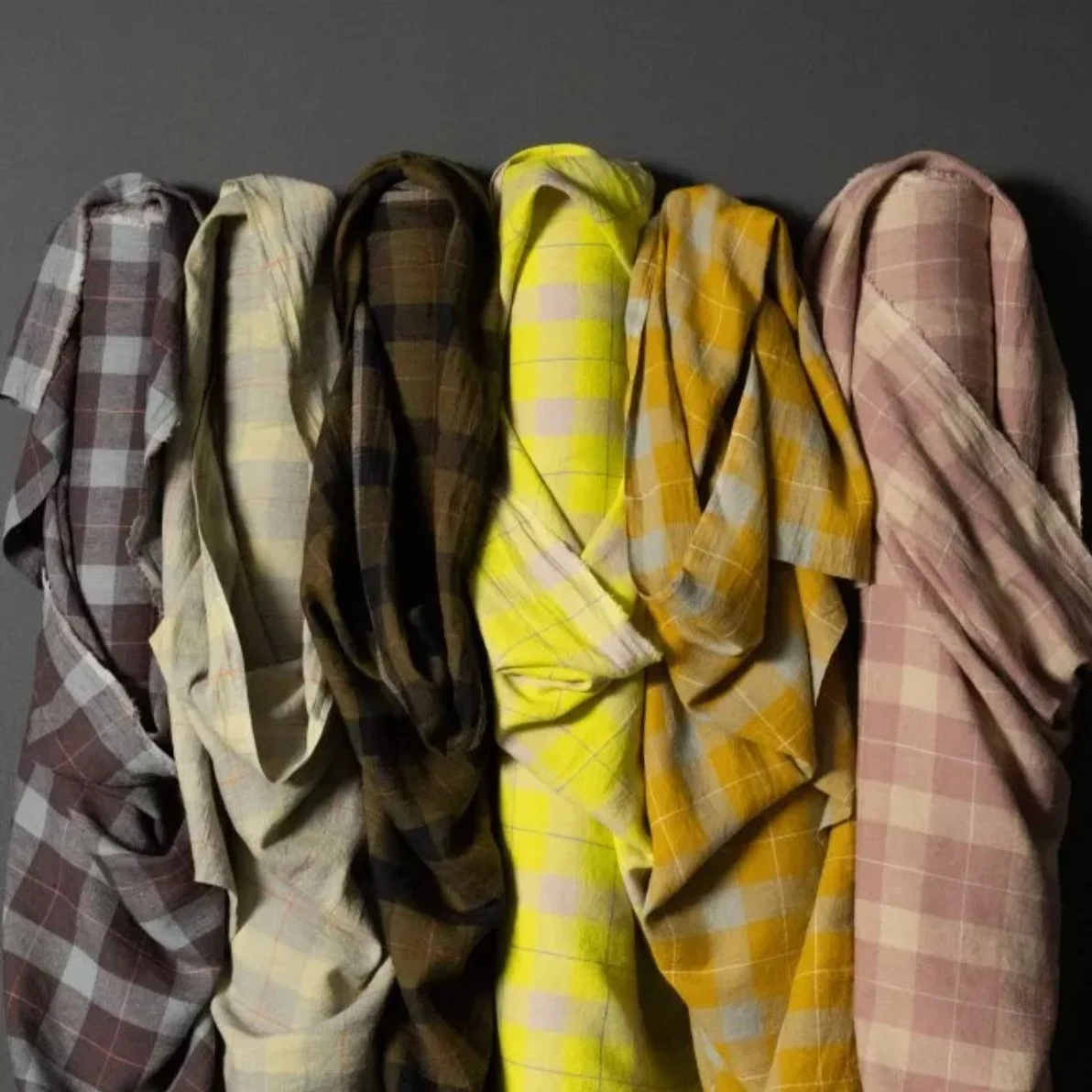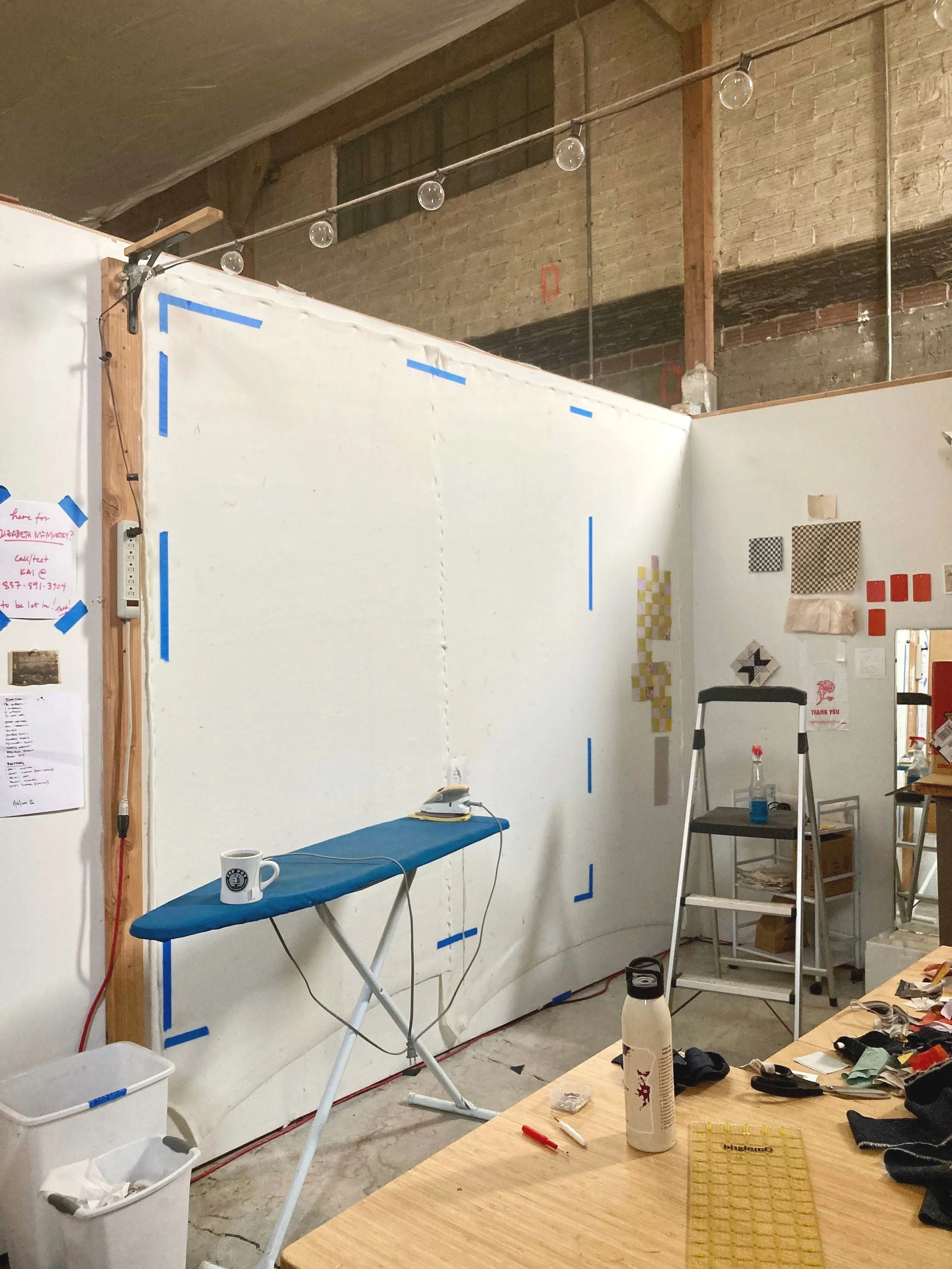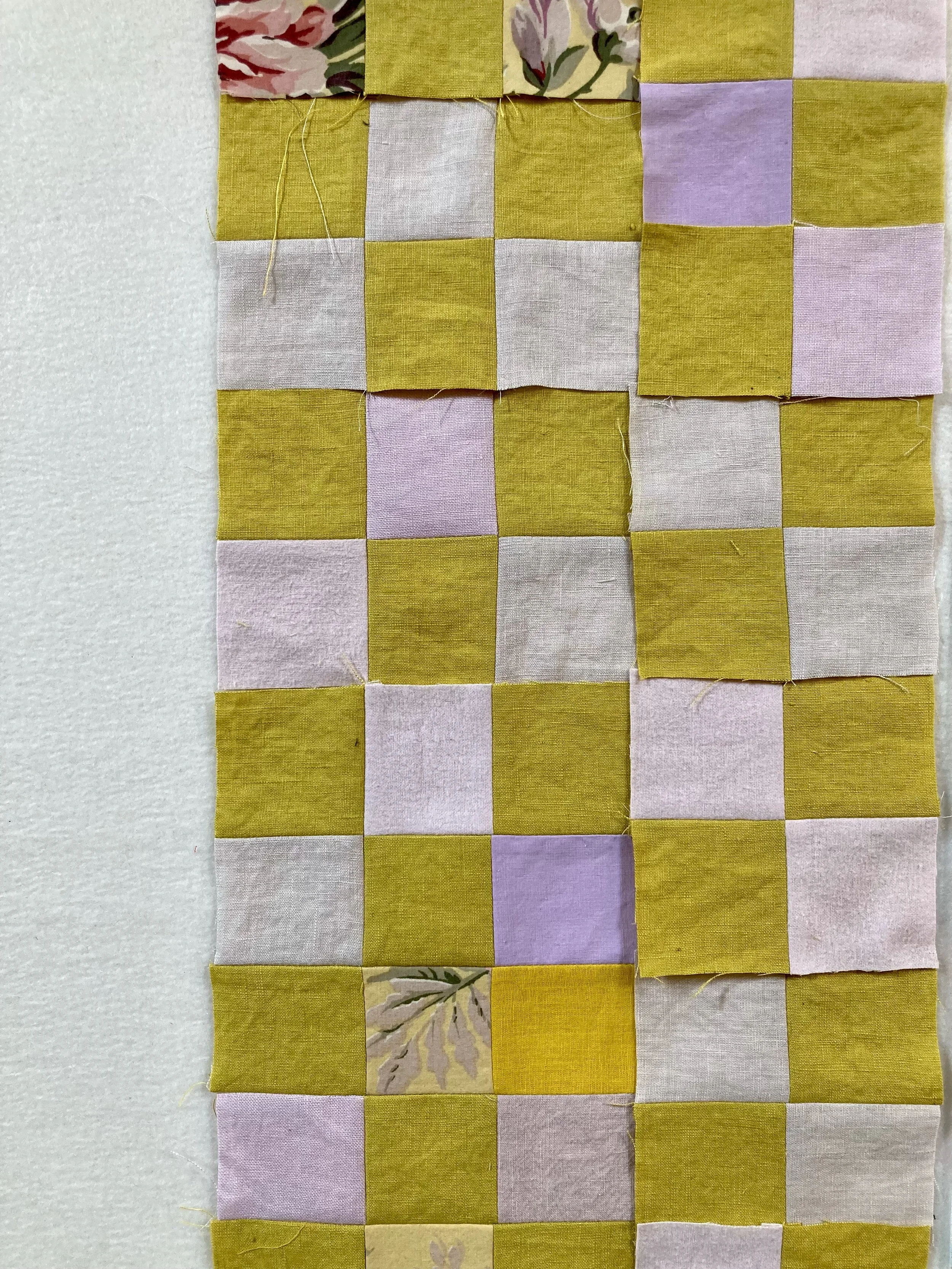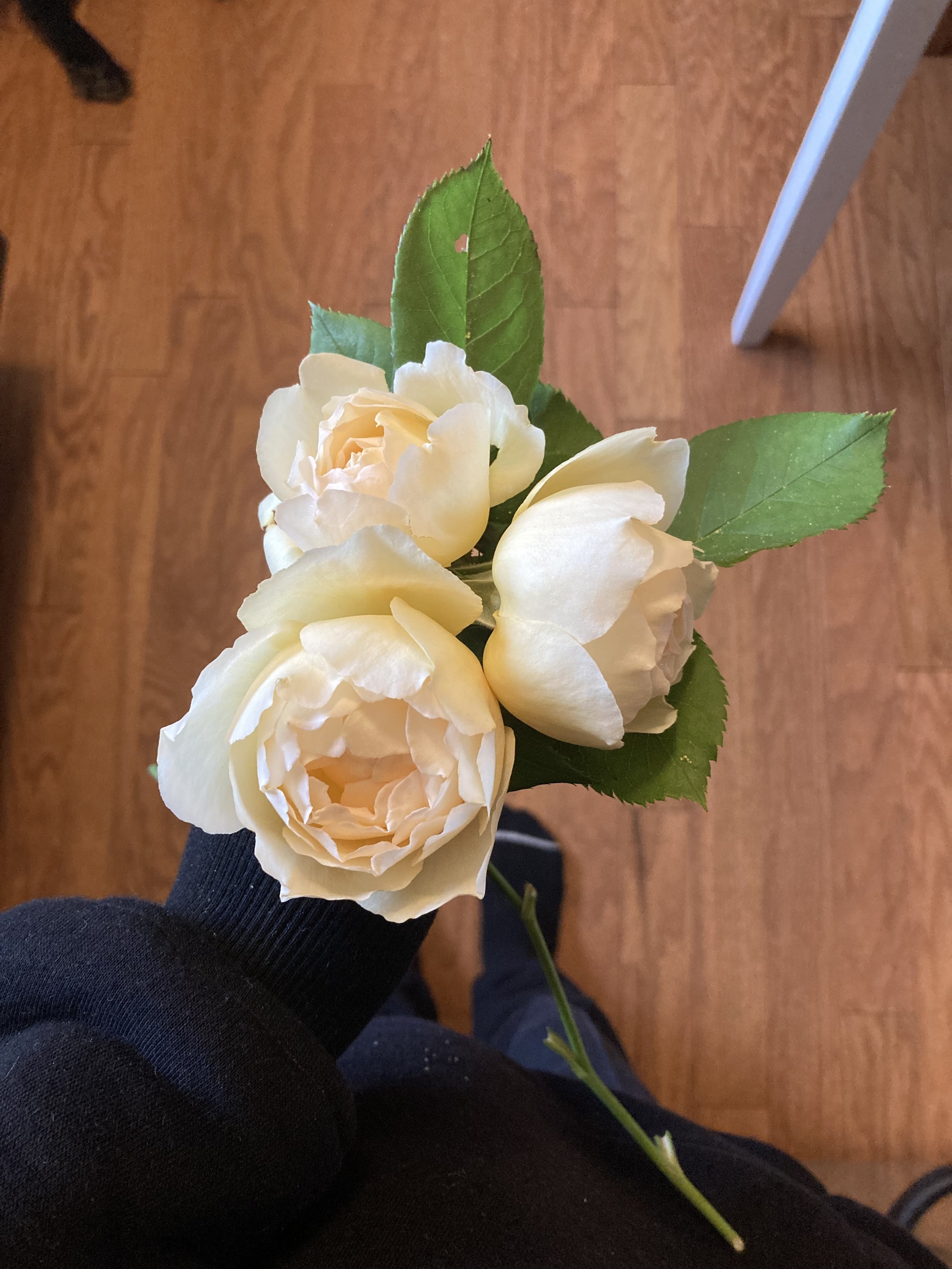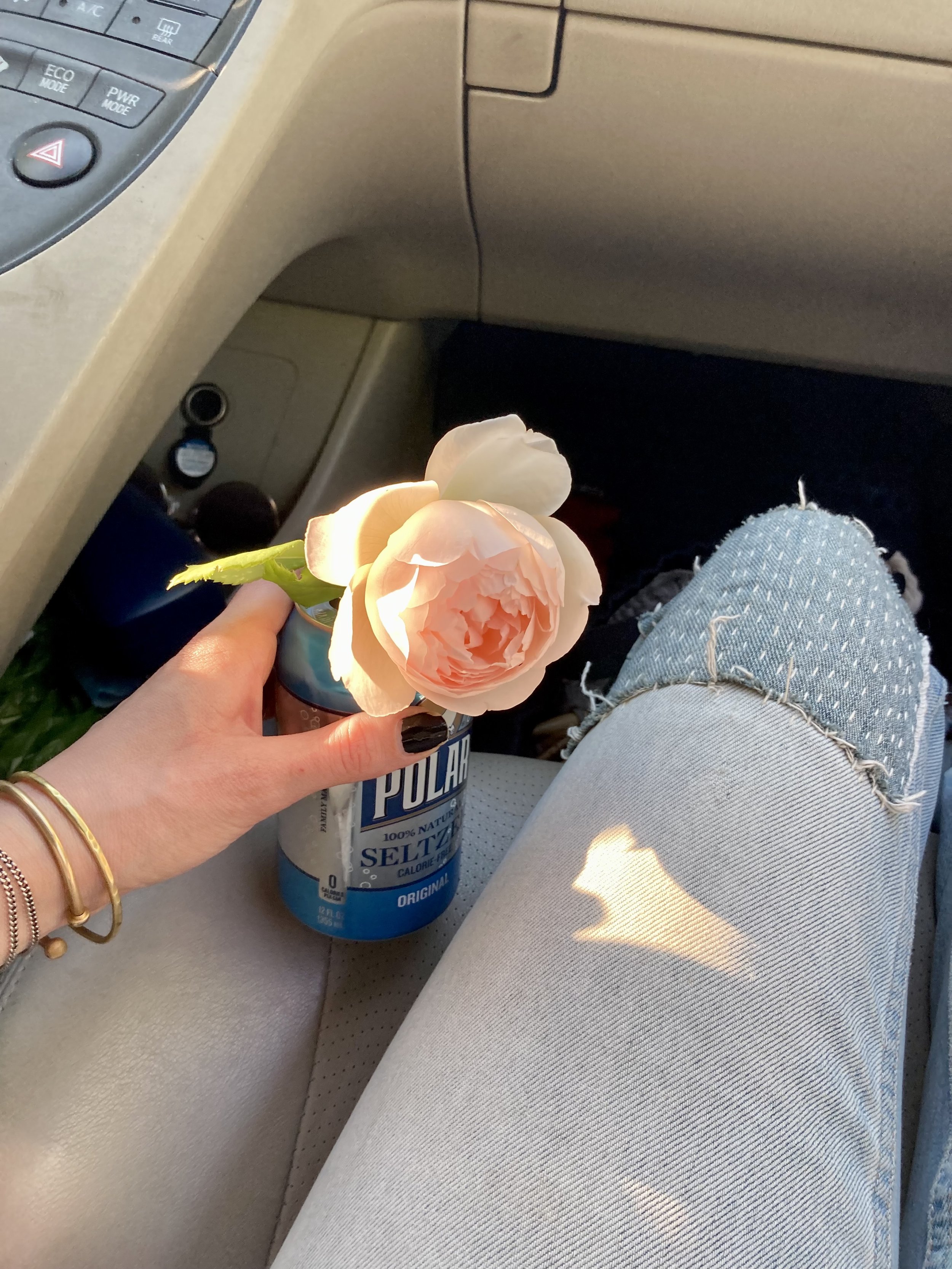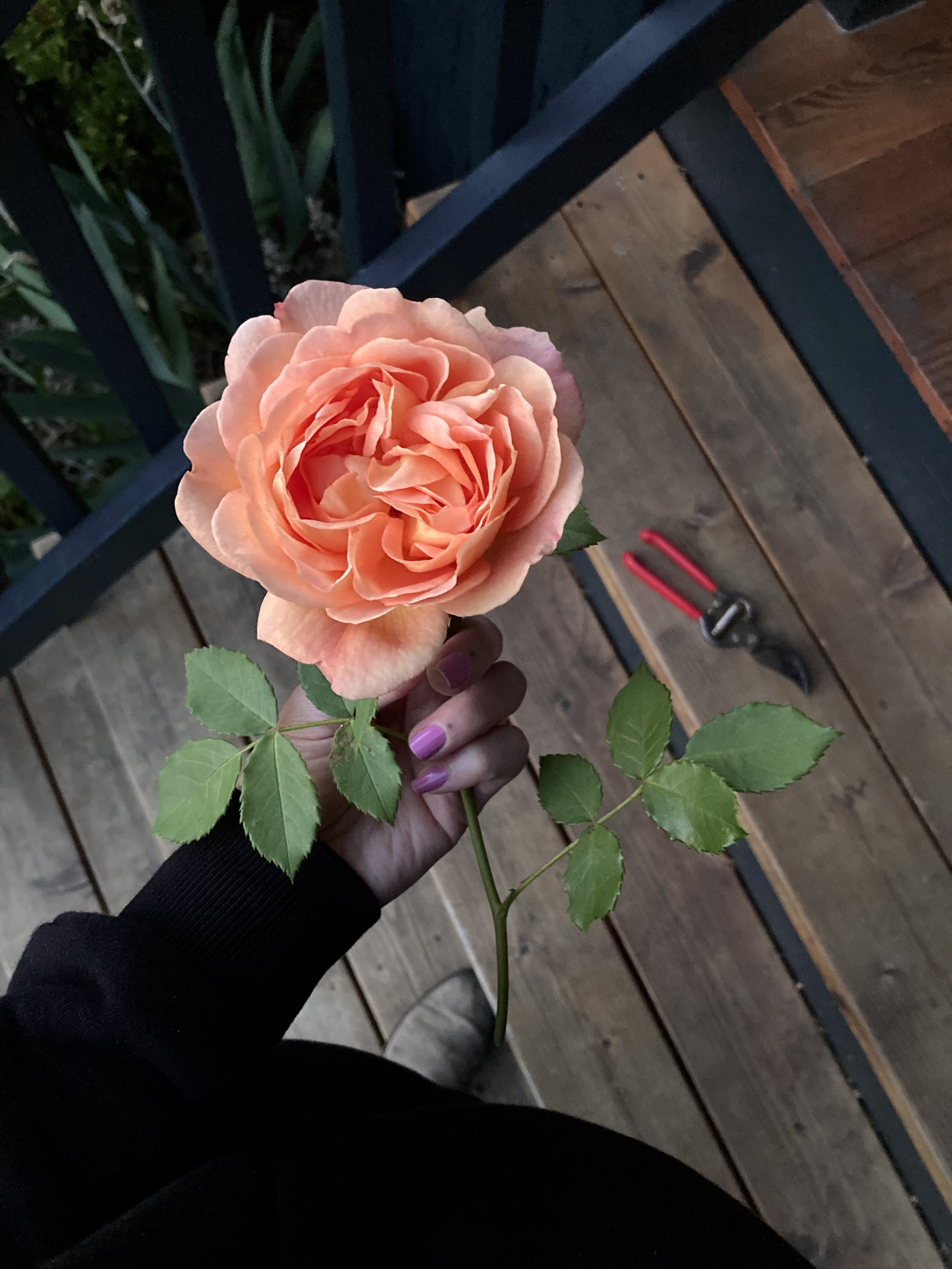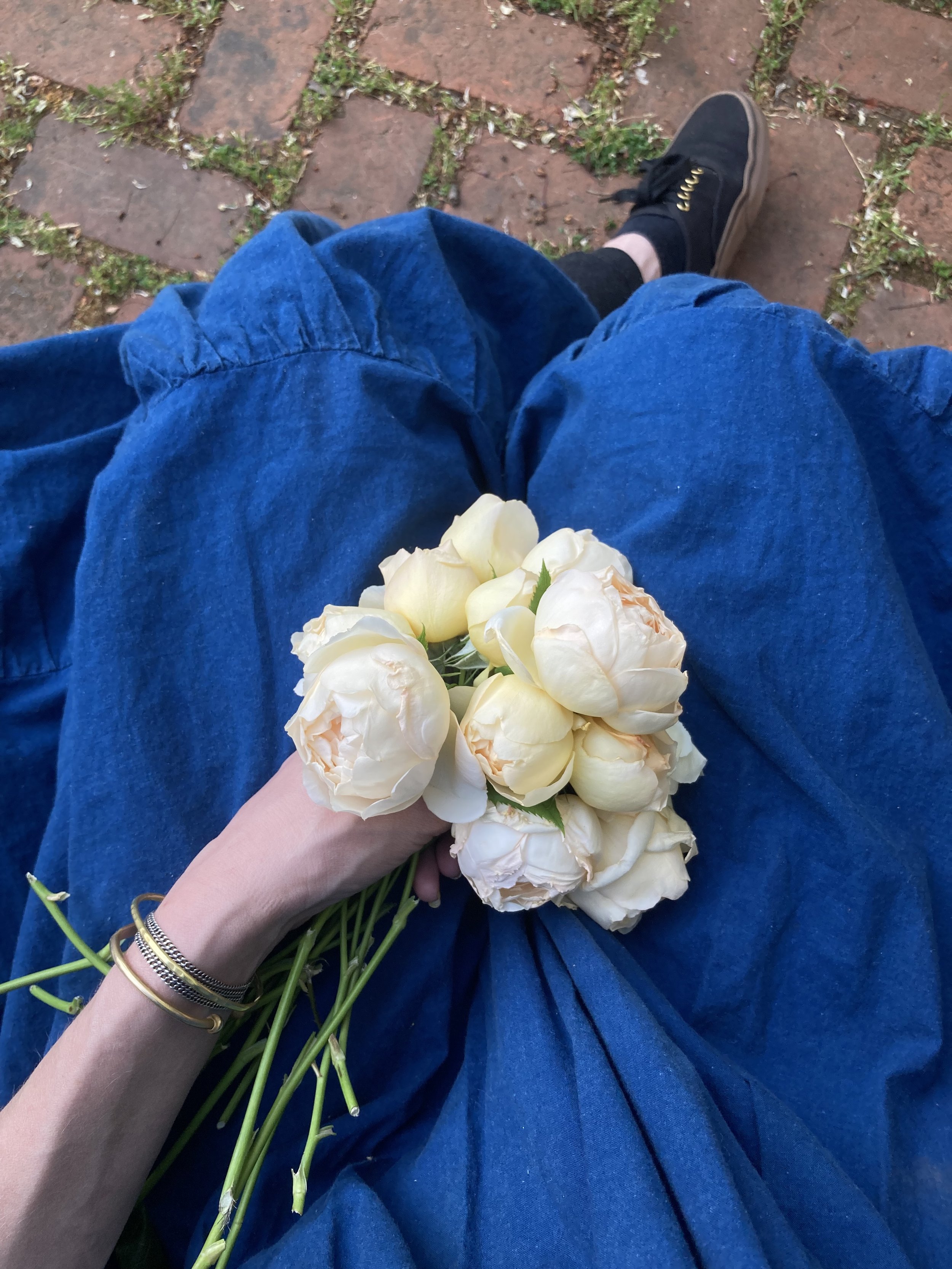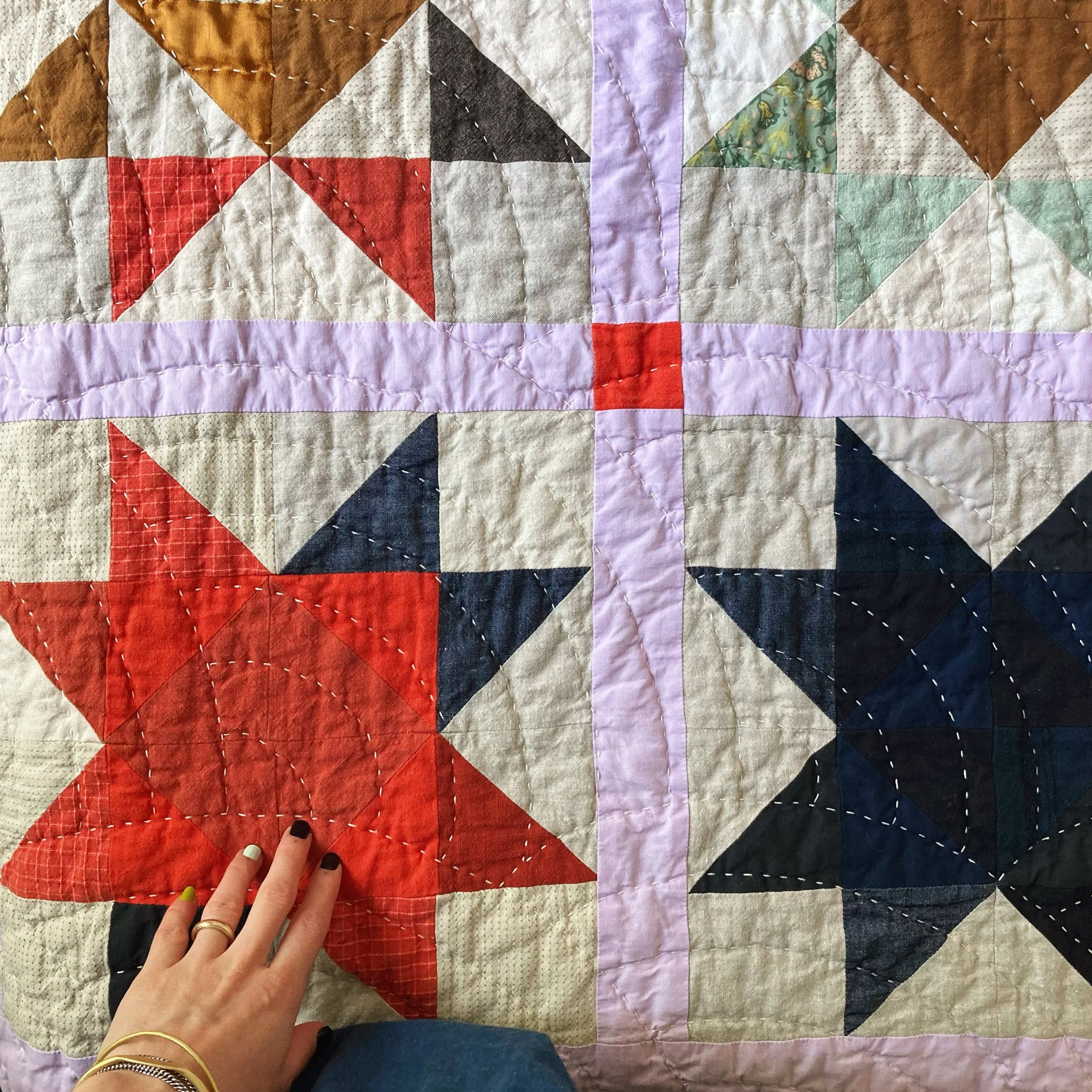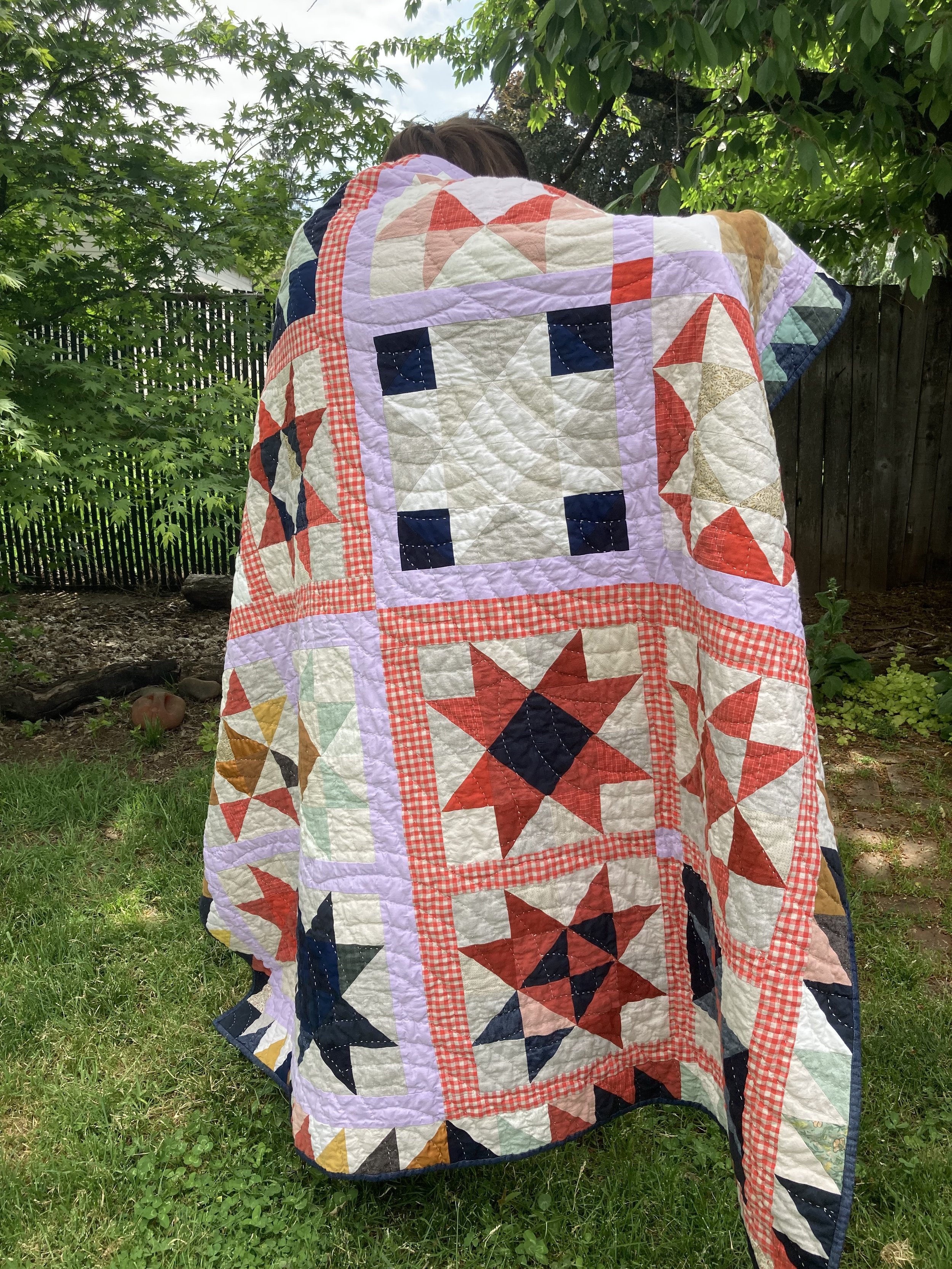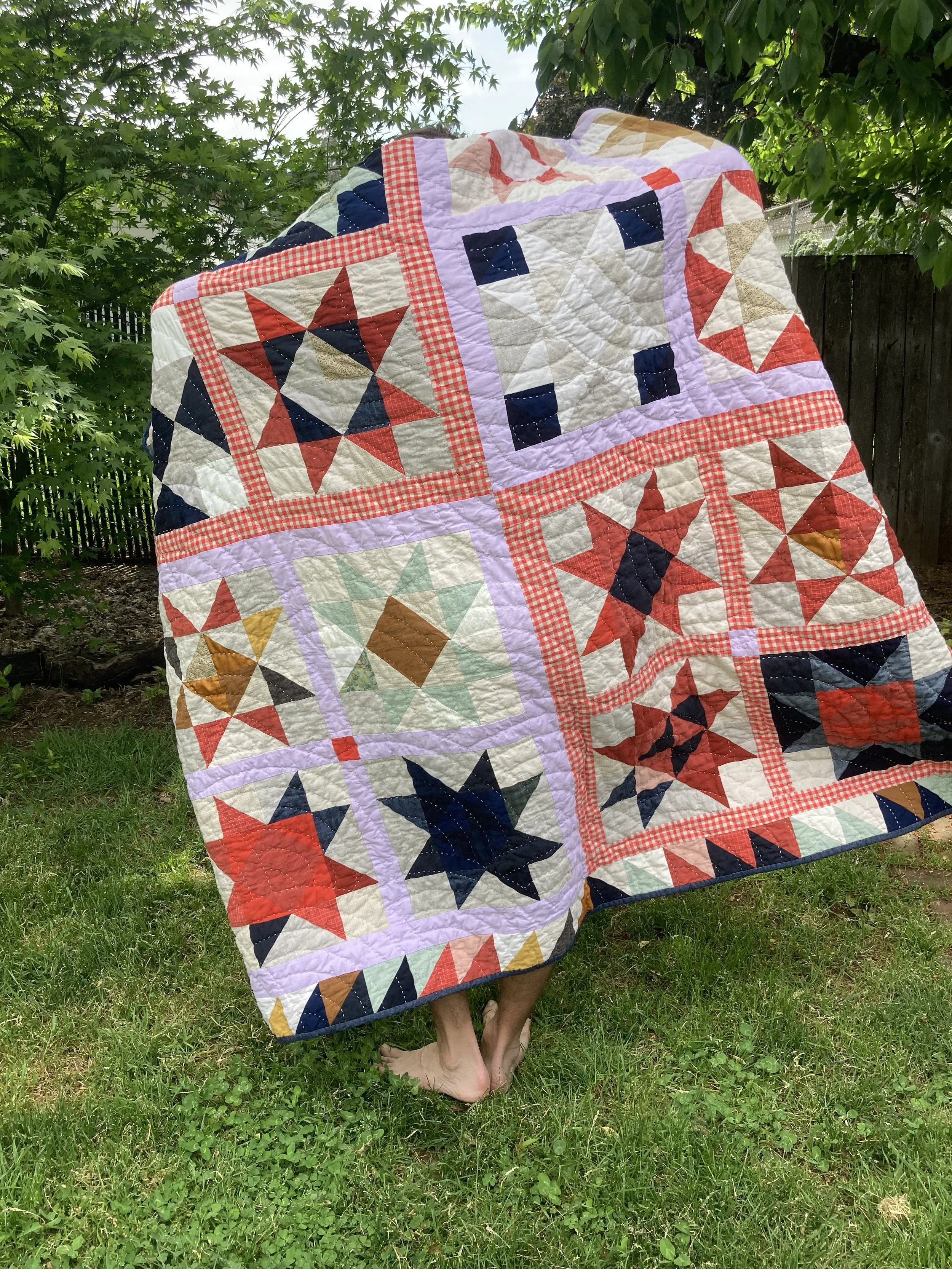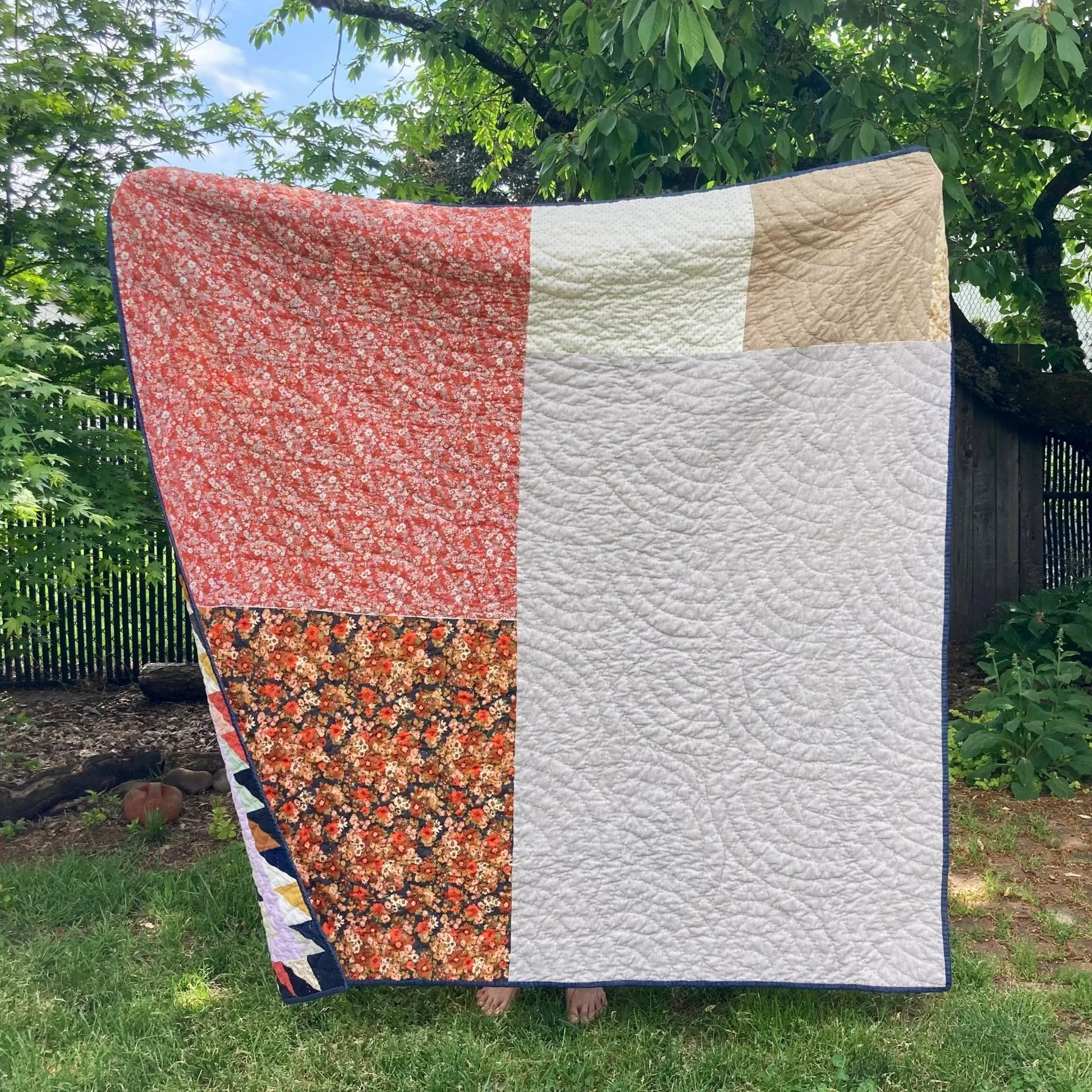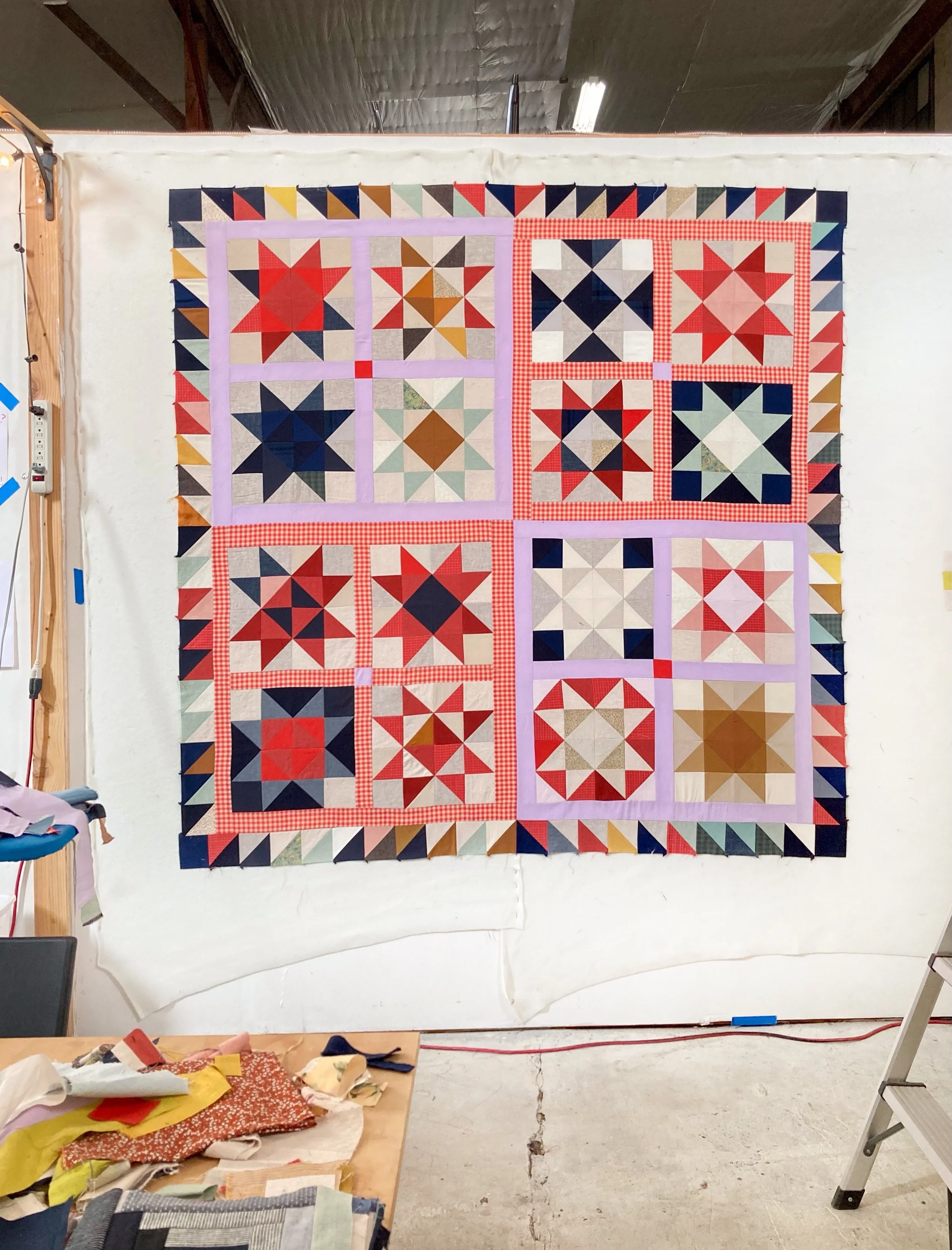And just like last year, I did it again – fell off of my habit completely, and find myself up against the end of the calendar. But unlike the tail end of last year, though I have been quiet, I have also been very busy. I’ve kept the ever-more-brain-rotting Instagram off my phone (re-downloading today just to populate the grid with some of the year’s work), and have been overflowing with ideas and plans, more even than I have been able to pour out, despite how quickly and well the work is coming through.
After finishing the large “Red Sister” top, I immediately turned my attention to finishing the one I’ve been jokingly calling “The Vat of Acid Episode Quilt” (“Acid Vat,” for short). I had struggled with that one; it sat, only a few decisions – and their seams – away from completion all summer, but determining the final design didn’t come easily or assuredly to me. My original “plan” — this word is very loose, these days — was for an acid yellow and lilac square grid frame, surrounding a checkered brick interior in many colors. For the center I originally considered scrappy, random brights. But then I set the squares next to this soft, dusty blue grid, and the vision changed significantly. The overall effect was gentle, a sort of springtime feeling. And I loved both the interplay of the squares and the immense ease of letting a patterned fabric do the heavy lifting. But I couldn’t be quite sure — what about pairing these colors with navy or peacock, what if it wanted to be dark and moody? Was dusty blue too twee? Was a whole cloth center too much of an easy way out?
And though I made the star blocks for this quilt specifically, originally imagining them in the four corners, in the end I hate Y seams so much that I couldn’t bring myself to make a fourth (though there is visible improvement even from the first to the third) and I heartily debated leaving them out entirely. Once I determined that they would stay, since they didn’t fill the vertical space completely – part of improvising means not planning for any perfect math – I had some filler choices to make. So many small, painstaking choices.
But decide all these things, I did at last. And though I felt confident about none of it — this was definitely not the “I know the answer” experience — in the end I love how it turned out. And so, “done” for now, it was tucked away with the other tops, patiently awaiting a back, and batting, and basting, and quilting, and binding, &c. (Despite all the work left to be done, I still experience a highly satisfying feeling of completion when a quilt top’s final seam and press is, well, “finished”.)
The "Vat of Acid Episode" quilt top complete on the wall; "Golden Triangles" in the corner, and the lilac/red stack in the foreground awaiting its turn.
In October I dug the HST top-in-progress I’ve nicknamed “Golden Triangles“ out of hibernation and put it on the wall, and made decisions on how to alter some of the fabric more to my liking – a dye pot project – and so back into waiting it went. Next I pulled out the vintage lilac and white crib quilt top I found on my birthday pilgrimage last year, and debated. I was tempted to simply finish it as-is, and be able to give it as a “quick” gift; but the opportunity to re-imagine it into some new and unexpected iteration of itself felt too tempting to pass up. I compiled a stack of reds and lilacs I had been daydreaming about combining for what was originally an unrelated idea, and realized that the melding of the two could prove to equal more than the sum of their parts. That one came together shockingly quickly, despite the intensity of that outer border, and it too, now, is awaiting its back.
Per the list I made at the beginning of September, I went and finally bought binding fabric for the aforementioned three-years-late baby gift. While I tend to exclusively hand-bind quilts, in this instance for expediency, toddler-friendly frequent laundering, and to save on body wear-and-tear, I bound by machine; I have no regrets. I spent a quiet afternoon binding it, putting it in the washer, and just like that — another project was actually complete. (But if you’re wondering if it made its way to said baby in the year 2024, why no, it did not.)
Exceedingly low quality PNW winter photos on a very, very old phone. And yes, I am considerably worried about getting those vintage, rather shoddily-made blocks to lie flat…
Sneaking some of the last little bits of that dusty blue into this one, too.
Finally binding an exceedingly late gift. Ah, well.
In all that time, though, really no headway was been made on the actual hand-quilting to-do list items. And that list has instead, of course, only grown. Since the summer of 2024 gifted me a bad case of tennis elbow I had to nurse for over six months, the last half of this year all my favorite hand-crafts were off the table. That issue having finally resolved itself just three or four weeks ago, it seems like now would be the perfect time to stop making tops and start actually quilting the… five? (or is it more?) that are already waiting. But I am in a flurry of ideas, they are coming easy and fast, and I just don’t see myself stepping away from piecing any time soon. This spring will have me away from my studio much more than in it, sadly, and so for the moment there are no rules except: make.
There is, of course, so much more to be said about what the year contained. Most notably, a gratitude for friendship – some very old, and some very new. Likewise, much could be said about the coming year, as well. But for the moment, for this quiet afternoon when what I’m craving is introspection, and personal reflection – there are the quilts.
I’ll end with a teaser of the piece I’m working on now – which started as a sort of dare to myself, a “this will be so heinous you might just like it” idea that burned in my brain for two months before I could get to it. Turns out I was wrong on both counts: I don’t find it heinous in the slightest, and I do not like it — I love it.
Let’s hope there are more unexpectedly pleasant surprises like that in the year ahead.
Just one bright spot of sun, on a small section of what will be the first top of 2025.




